Melanie DeMore Getting the Best out of Your Board
ADEI Learning from Theory to Practice
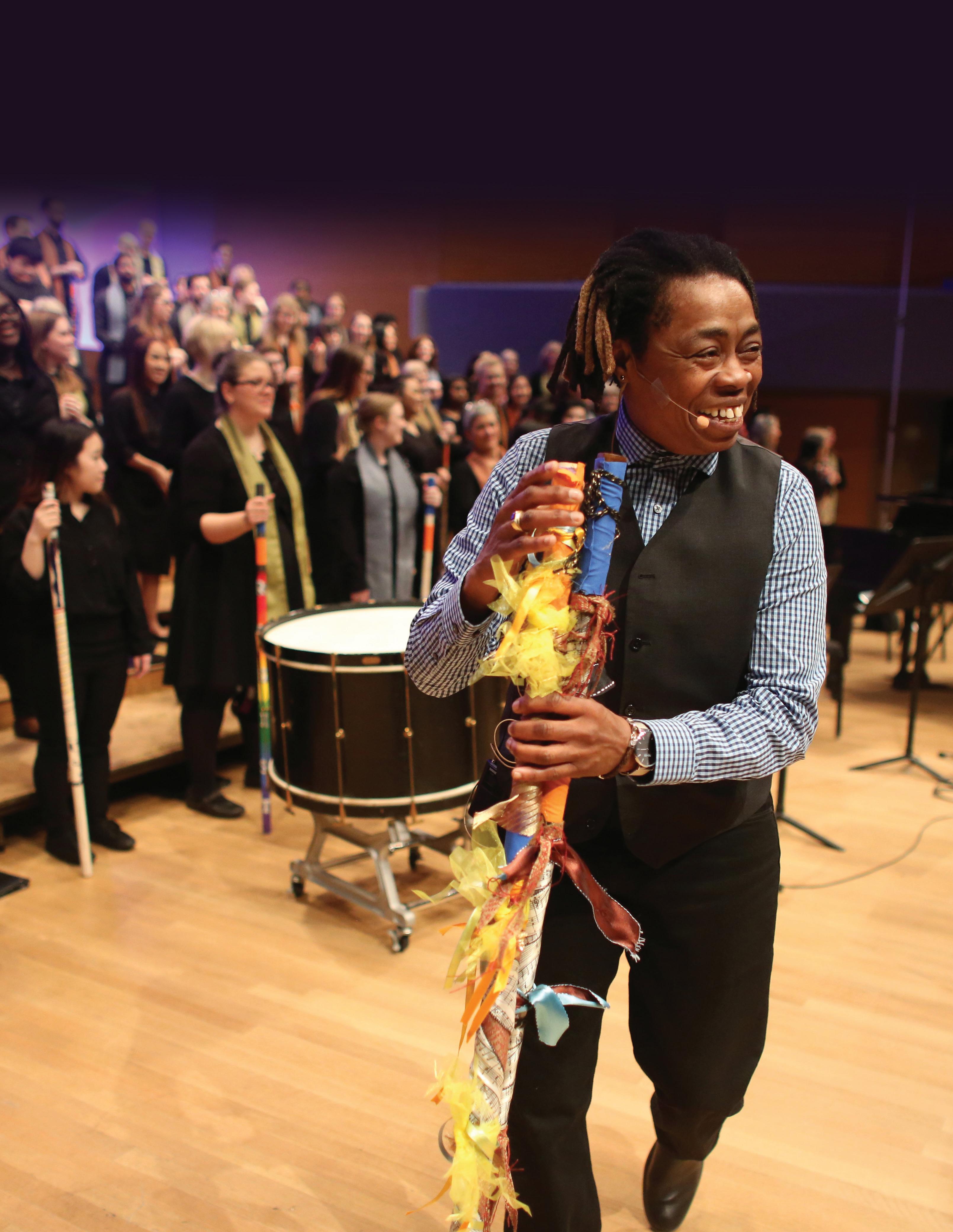
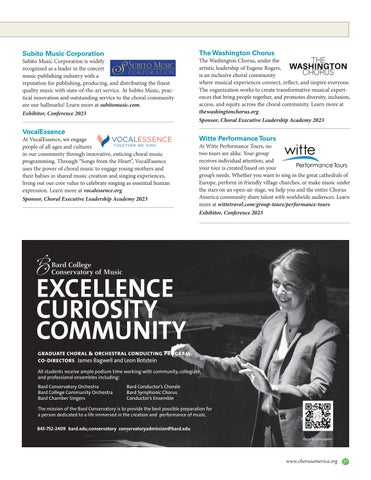

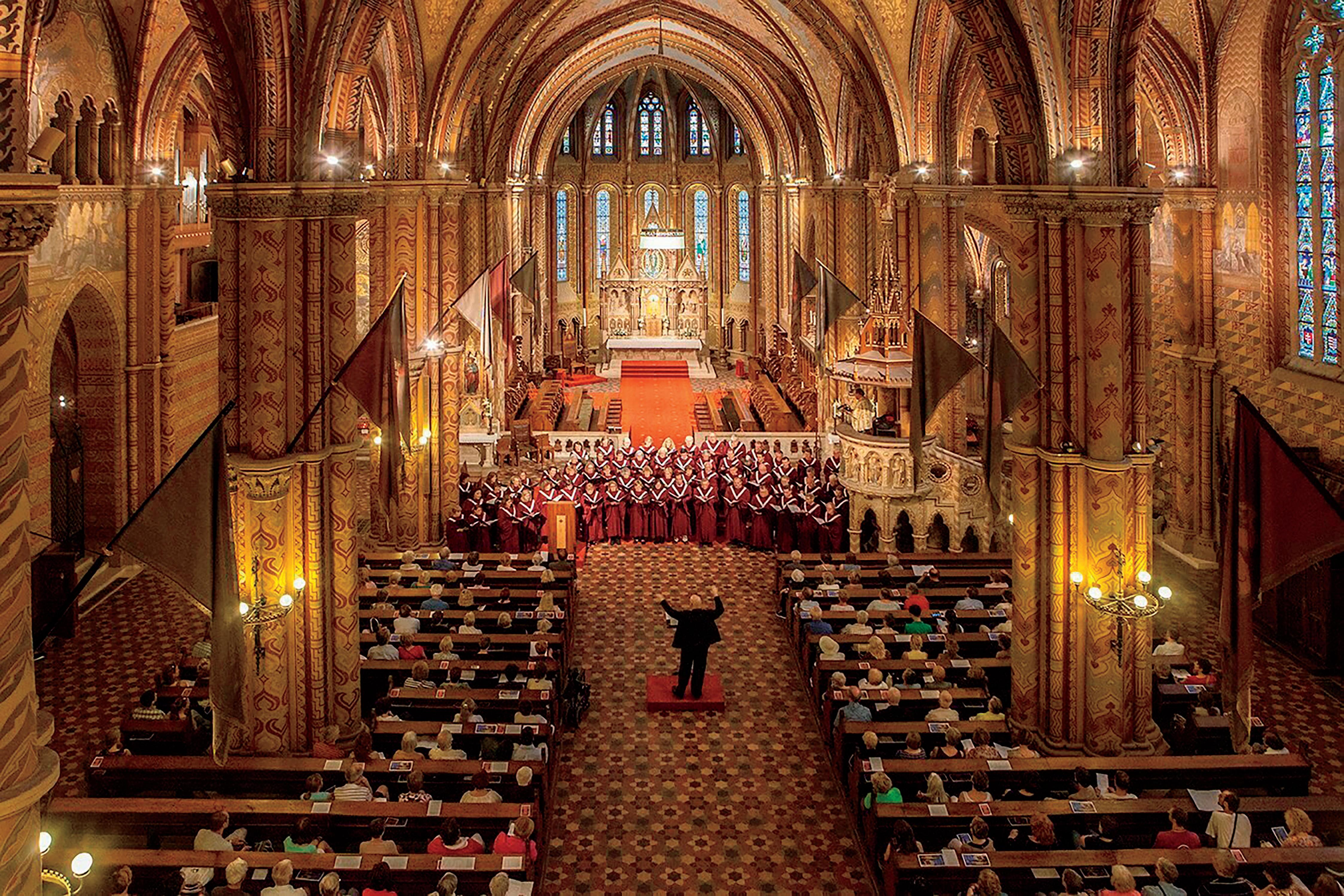






MAY 24-28
JULY 9-16
Berkshire Choral International expands the horizons of singers through participation in exhilarating performances, enriching travel and cultural exploration, lifelong music education, and connection to an inspiring community of choral artists.


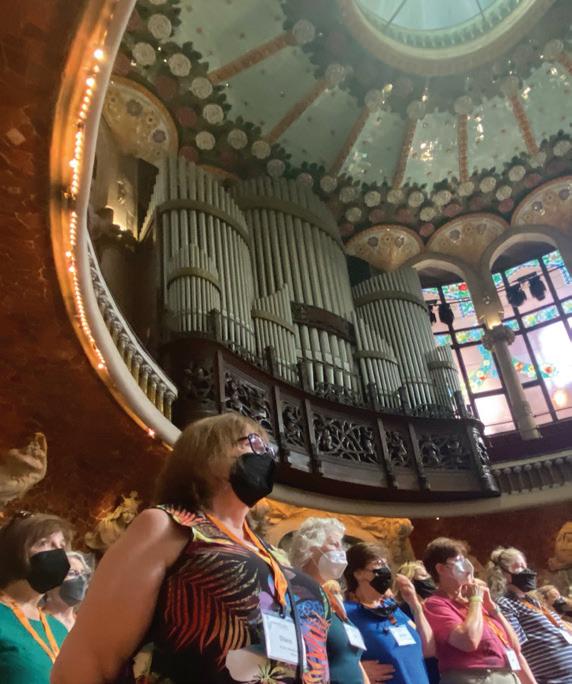
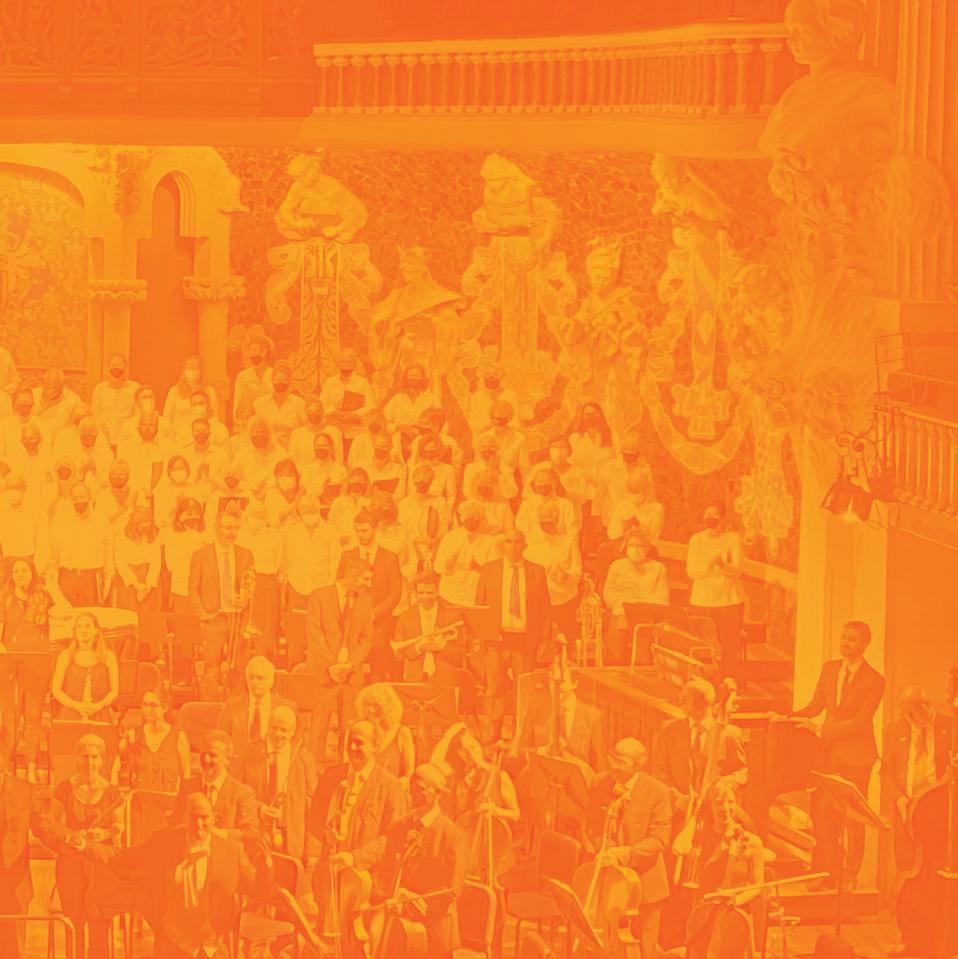

JUNE 18-25
JULY 30-AUGUST 6
berkshirechoral.org


Investing in Chorus America’s strategic alliances with like-minded organizations pays off for our members and the field.
At Chorus America, spring is a time for budget planning. The team has been working hard to prepare our FY24 budget, and it’s exciting to see our plans coming closer to life as we consider how best to use our members’ and donors’ investments in us to return the greatest benefit to the field. If there could be such a thing as a favorite budget line item, mine is strategic alliances—opportunities to improve the choral music ecosystem for our members and advance Chorus America’s Strategic Plan goals through partnerships and collaborations with like-minded organizations.
The importance of our budgetary investment in this work was highlighted for me recently when I traveled to New Orleans for a board meeting of the Performing Arts Alliance (PAA), the national policy advocate, leadership forum, and learning network for nonprofit performing arts organizations, artists, and allies in the U.S. Fellow members include leaders of arts service organizations such as Opera America, the League of American Orchestras, National Performance Network, Alternate Roots, Dance USA, and many others.
Chorus America’s membership in the PAA has given us—and by extension our constituents—access to skilled government affairs directors who implement the advocacy work of the coalition. We, in turn, share the PAA’s resources and “calls to action” with our members, offering the choral field a voice in issues that affect the performing arts at the federal level. Funding for the National Endowment for the Arts and arts education are some of the most prominent advocacy priorities, but the PAA also moves forward issues like incentives for charitable giving and reducing barriers for foreign artist visas.
More recently, the PAA is providing a valuable forum for leaders of arts organizations to discuss how the performing arts can advance racial justice and equity. In New Orleans, I was reminded of how
much I value the opportunity to learn and develop strategies with others who lead organizations similar to Chorus America. (Our FY24 budget will include a membership renewal!)
Closer to home, Chorus America greatly values its ongoing partnerships with the American Choral Directors Association (ACDA), Barbershop Harmony Society (BHS), and the National Association of Teachers of Singing to help strengthen the ecosystem in which we all function. Investing in these strategic alliances has had an impact in many ways, including:
• Fueling research into the full breadth of the choral ecosystem

• Expanding and updating the ground-breaking Chorus Impact Study in 2019
• Providing consistent, coordinated COVID-19 information and safety guidance to help singing communities, organizations, and professionals navigate the pandemic ACDA and Chorus America are particularly complementary organizations in supporting the continuum of choral music activity. As Chorus America developed its goals in advancing ADEI in our work, as detailed in the new Strategic Plan, we were inspired by Executive Director Robyn Hilger’s and ACDA’s Diversity Initiatives Standing Committee’s action steps and commitment to ADEI. Robyn and I are having great discussions while making plans to collaborate more closely in the coming year to leverage our organizations’ strengths in supporting lifelong access to choral music.
As the national arts service organization for the choral and group singing arts sector and community in Canada, Choral Canada is our Canadian counterpart and another strong partner. We are strengthening the ties between our organizations and supporting Chorus America’s Canadian members by maintaining a Canadian presence on our board and planning to attend PODIUM, Canada’s national bilingual choral Conference and Festival, in 2024.
Chorus America also brings a lot of strengths to the table when it comes to partnerships. When organizations come to us to explore collaborations, they are eager to leverage our reach with choruses that are grounded in serving communities. They want to build on the fact that our constituent base comprises people who value social connection and civic responsibility (and we have the data to prove it!). We also bring to the table an influential group of choral leaders on our Board of Directors; a customer service mindset and a learning stance; and an experienced and committed staff who work hard, fast, and smart to reap the greatest value out of partnerships.
So, I’m excited about the possibilities represented by the strategic alliances budget line item and the work we’ll do, together.
Catherine Dehoney President & CEO, Chorus America
When organizations come to us to explore collaborations, they are eager to leverage our reach with choruses that are grounded in serving communities.

chorusamerica.org facebook.com/ chorusamerica twitter.com/ chorusamerica
We welcome your news and photos any time. Post them to the Member News area of our website at bit.ly/CAmembernews
Submit news to the Voice: voice@chorusamerica.org
You may also post your concert and auditions announcements at bit.ly/ChorusAmericacalendar
Volti (pictured) premiered Pamela Z’s Ink in late 2022 as part of its 44th season. The work is a multimedia piece built from recordings of the singers’ spoken voices, electronic sound, and video projections, interwoven with live singing and gestures.

The Unity Church-Unitarian’s Unity Singers from Saint Paul, Minnesota, premiered Before Prayer by Carol Barnett with text by Brian Newhouse on April 2. Chorus America commissioned the work to honor Newhouse and his tenure as board chair.
The Crossing premiered Self-Portraits 1964, Unfinished by Martin Bresnick on March 24. The work, co-commissioned with PRISM
Quartet, is a self-portrait/autobiographical work that draws on the words of iconic authors of the last 150 years and captures a formative moment in Bresnick’s life.
The Pacific Chorale from Orange County, California concluded its season with the world premiere of the orchestral version of composer Florence Price’s Abraham Lincoln Walks at Midnight. The long-lost manuscript by Price was recovered from an abandoned house in Illinois in 2009 and is thought to have been completed between 1914 and 1949.
Seattle Pro Musica presented the world premiere of Jerod Impichchaachaaha’ Tate’s The Glimmer on March 25. The new work, commissioned by Seattle Pro Musica, pulls from the poem “The Glimmer” by Washington state poet laureate and citizen of the Lummi Nation, Rena Priest. Tate’s piece is the last in Seattle Pro Musica’s New American Composers series which celebrated the organization’s 50th anniversary.
Jerod Impichchaachaaha’ Tate was in residence in Seattle the week prior to his commission engaging with public school children about composition and the music of Chickasaw culture.

The Indianapolis Symphonic Choir presented the world premiere of Toward A Secret Sky by Augusta Read Thomas on April 28. Thomas was commissioned by the choir in 2020 as part of the organization’s mission to create and perform new choral masterworks. The work features text by the 13th-century Persian poet Rumi and is paired with Francis Poulenc’s Gloria
On March 29, singers of the Los Angeles Master Chorale sang alongside students from Hamilton High School in Los Angeles, California for the premiere of Stonewall: The Oratorio. The work, created for the Chorale’s Oratorio Project education program and arranged and orchestrated by Saunder Choi, tells the story of the Stonewall Inn and celebrates the civil rights demonstrations from 1969 that ignited the gay rights movement. u
In2022, Chorus America’s Music Education Partnership Grants program distributed over $900,000 in grants to fund projects designed to increase access to choral music and promote non-arts learning and cultural literacy while upholding the principles of access, diversity, equity, and inclusion.
Twenty projects received awards to support collaborations during the 2022–23 school year to community organizations and schools across the United States and Canada. We are thrilled to share updates and photos from some of our grant partners in our Grantee Spotlight series.
Grand Vision Foundation
The Grand Vision Foundation (pictured above) in San Pedro, California received an award to support its Roots Music Program (RoMP). Implemented at eight schools and growing, RoMP teaches elementary school students music basics and teamwork and encourages empathy. The semester-long program gives fourth graders

the opportunity to explore foundational music concepts through a multicultural lens, engage with professional performing artists and present a performance of international music.
Desert Sounds (pictured below) from Mesa, Arizona is utilizing funds from their Music Education Partnership Grant to support the singing skills of about 100 students with the support of newly hired vocal instructors. Desert Sounds enthusiastically shared with Chorus America that students are coming out of their shells, including a shy student who has participated in the program for four years and performed their first solo in March.
Students are also learning and growing their appreciation for Mariachi music. In late 2022, the organization worked with fellow Chorus America grantee Bi-National Arts Institute to perform Mariachi music at the border between the sister cities of Naco, Arizona (USA) and Naco, Sonora (Mexico).
To see more photos and read updates from our Grant Partners, check out our Grantee Spotlight Series on our High Notes Blog and social media accounts!

in 1873, the Cincinnati May Festival celebrated its 150th anniversary as the longest continuously running choral festival in the Western hemisphere with the 2022–2023 season. Premieres, new programs, and more were all part of the celebratory year.

The 2023 Cincinnati May Festival featured the May Festival Chorus and Cincinnati Symphony Orchestra (CSO) performing beloved works, including Gustav Mahler’s Symphony No. 8, Symphony of a Thousand, joined by the Cleveland Orchestra Chorus, Cincinnati Youth Choir, and Cincinnati Boychoir; Mozart’s Requiem; Bach’s Magnificat; and R. Nathaniel Dett’s oratorio The Ordering of Moses. The season also featured significant premieres of commissioned works. During a May 19 concert, Timotheus, Bacchus and Cecilia by James MacMillan and Breaths of Universal Longings by James Lee III premiered. Then, led by May Festival music director laureate James Conlon on May 25, the May Festival Chorus and Cincinnati Symphony Orchestra performed a newly commissioned work by Julia Adolphe.
In honor of its commissioning legacy, the May Festival also launched the 25 for 25: A New Time for Choral Music


On May 6, the Indianapolis Children’s Choir premiered Terang and Hope is a Waking Dream Terang, a song commissioned for the Indianapolis Children’s Choir, focuses on a Malay proverb and explores the fading performance art of Malay-Kelantanese Wayang Kulit (shadow puppet) tradition. Hope is a Waking
commissioning project as part of its anniversary. Through this project, 25 composers from the Luna Composition Lab, which supports female, nonbinary, and gender non-conforming composers ages 13–18, composed new works that were premiered by area choral ensembles across Greater Cincinnati. The 25 new works premiered in April and May. This year serves as principal conductor Juanjo Mena’s conclusion to his six-year tenure with the May Festival. Mena contributed new and diverse programming and a deep commitment to community engagement during his time with the May Festival.
The 150th anniversary season also brought the announcement of the retirement of director of choruses Robert Porco. The longest-tenured director of choruses in the history of the May Festival, Porco will conclude his 35-year tenure after the 2023–24 season. He has worked with more than 1,300 individual singers of the May Festival Chorus, prepared 532 distinct choral works for 170 May Festival concerts, and conducted 26 concerts. Porco will be named director of choruses emeritus upon retirement.
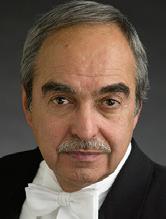
Dream, composed by Greg Gilpin, is based on text from Aristotle that aims to inspire both the performers and audience to seek unity.

Ember Choral Arts performed the premiere of Three Water Songs by David Avshalomov on March 25. Avsholomov utilized the texts “All Day I Hear the Noise of Waters” by James Joyce and “Waterfall at Lu-shan” by the 8th-century

Chinese poet Li Po and crafted a third text himself about the Great Pacific Garbage Patch.

The Atonement, a cantata composed by Samuel Coleridge-Taylor that debuted in 1903, was performed for the first time in over 100 years for a doctoral project by University of Michigan choral conducting student Bryan Ijames. The project resulted in the first full recording of the piece, which may be the first work of its kind ever written by a composer of color.


Cantori New York gave the world premiere of Les fous et leurs chimères by Benjamin C. S. Boyle on March 4 and 5. Boyle’s cantata sets prose poems by Charles Baudelaire, in which the 19th century French poet addresses issues of social and economic inequities that remain relevant today. The commission was conceived in honor of Baudelaire’s 2021 bicentenary but performed this year due to the COVID-19 pandemic.
Cantori New York and The Cecilia Chorus of New York commissioned Derrick Skye’s Neither Separated, Nor Undone. Skye’s work draws on the rhythms and sonorities of Balkan, Ghanaian, and Persian traditions. Cantori New York premiered the chamber orchestra version at New York City’s Church of the Holy Apostles on November 12, 2022; The Cecilia Chorus of New York gave the world premiere of the full orchestra version in Carnegie Hall on April 28, 2023. n


Former Chorus America board member Shawn Crouch released The Tracery of Lights on February 14. The 10-track release includes performances by Volti, Seraphic Fire, and Essential Voices USA

On April 21, Chanticleer released On a Clear Day. Chanticleer shared that the new album, “traces a journey from darkness to light, and from mystery to clarity.” Most of the works on the album were commissioned by the group, including compositions by composers Mason Bates, Shawn Crouch, Stephen Paulus, and Steven Sametz. u

Bay Area-based girl chorus iSing
Silicon Valley released its second full-length album, love & light on April 14. The release is a collaboration with GRAMMY® Awardwinning soprano Estelí Gomez and virtuosa harpist Cheryl Fulton and is part of iSing’s 10th anniversary celebrations. The release features new commissions chorea lucis by California-based composer Kenyon Duncan and Lux Aeterna by South Korean Guggenheim Fellow Sungji Hong. n

Boston Children’s Chorus executive director Andrés Holder was honored as one of Boston’s Most Influential Men of Color by Get Konnected! Get Konnected! is a social impact venture which curates meaningful business and social connections, cultivates positive cross-cultural relationships, and facilitates business and career opportunities for women and people of color.
The University of British Columbia (UBC) announced Morna Edmundson, artistic director of Elektra Women’s Choir, as the recipient of a Doctor of Letters honorary degree. “As a choral conductor, administrator and builder, she has set a standard of excellence within her choirs that has been widely acknowledged in both performance and competition,” said UBC of the former Chorus America board member. n
The National Lutheran Choir (NLC) announced the appointment of Jennaya Robison (pictured) as its third artistic director in the organization’s 37-year history. Robison will assume her role on July 1 succeeding David Cherwien (pictured), who is retiring after 21 years of service. During
On April 3, Oregon Bach Festival (OBF) announced the passing of H. Royce Saltzman at 94 years old. The co-founder and executive director of the Grammy-winning Oregon Bach Festival, Saltzman also served on the Chorus America Board of Directors from 2004–2010. He was the very first recipient of the Chorus America Distinguished Service Award, in honor of his service to the organization and immense impact on the choral field. Saltzman’s daughter, conductor and educator Kathy Saltzman Romey, shares some reflections on her father’s life and legacy. Romey also received the Chorus America Distinguished Service Award in 2021, with her father contributing remarks for the occasion.
Myfather was not only a parent but also one of my most important mentors and advisors. As a young conductor, I had many moments of doubt and would often call him for council and reassurance. He was always patient and calm, encouraging me to take risks and embrace new challenges as an opportunity for personal and professional growth. Throughout my childhood and undergraduate degree, he served as a wonderful role model in his work as a conductor, educator, and civic leader. Shortly after I graduated from the University of Oregon, he decided to step off the podium and away from the classroom to focus solely on administration. This was a very difficult decision for him as he dearly loved both teaching and performance. However, I know he felt he could make a greater contribution to the field through his work as an administrator. Looking back, I know this to be true. I witnessed his visionary leadership firsthand as Co-Founder and Executive Director of the Oregon Bach Festival (1970–2007), National President of
Cherwien’s more than two decades of leadership, NLC commissioned 21 new works and released 20 recordings.
Cathedral Choral Society (CCS) announced Gerald Lee Ricks (pictured) as its guest artist coordinator. Ricks also serves National City Christian Church as the director of worship, music, and arts.

ACDA (1979–1981), Founding Member and President of IFCM (1985–1993) and his service on NEA panels, international juries, and advisory boards including Chorus America (2004–2010). He lived out his core values in partnership with Helmuth Rilling, creating meaningful educational and performance experiences for generations of singers, teachers and conductors at the Oregon Bach Festival. Likewise, he was passionate in his advocacy for international exchange and cooperation coordinating four IFCM World Symposia, which celebrated the richness and diversity of choral music in all parts of the world.

Anton Armstrong often referred to my father as a servant leader, citing his unwavering commitment to facilitate and further the choral art both in this country and abroad. In the weeks leading up to and following his death, we received countless letters from friends and colleagues around the world, who spoke about my father’s impact on their lives. I know his spirit and legacy continue in those who were touched by his work and belief in the power of choral music to connect us as a global singing community.
The Oregon Bach Festival will honor Saltzman’s legacy with a public Celebration of Life on July 6 in Silva Concert Hall at the Hult Center for the Performing Arts.

Boston Children’s Chorus appointed Kenneth Griffith (pictured) as its new music director. Griffith joined the organization in 2021 and most recently served as associate director of choirs.


Sonya Dahlgren Pryor (pictured), artistic director of Chorus North Shore, will
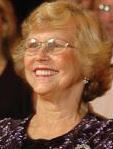
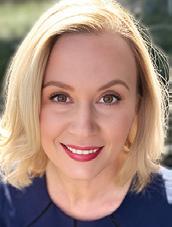
retire this year after 62 years with the Ipswich, Massachusetts-based chorus. Dahlgren Pryor received many awards and honors as a music educator and director, including The Walter Hancock Award for Lifetime Achievement in the Humanities and an award as Outstanding Arts Educator in Massachusetts.
John Silantien (pictured) of the San Antonio Mastersingers retired after a 38-year career of local, nation and international service to the choral directing field. Silantien was director of the choral activities program at the University of Texas, San Antonio and the San Antonio Master-singers which is the oldest symphony chorus in Texas. The Mastersingers commissioned Ethan Wickman to compose Two Sea Songs in honor of the former director. Silantien now holds the title of music director emeritus with the Mastersingers.
Children’s Chorus of Washington announced that Robbie Jacobs (pictured) will join the organization as executive director this

summer. Jacobs currently holds the position of executive producer at Boston Children’s Chorus.


ProMusica Arizona Chorale and Orchestra announced the retirement of executive director Yvonne Dolby (pictured). Dolby will retire on June 30 after a 12-year tenure.
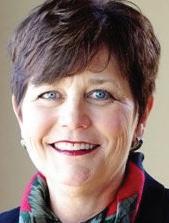
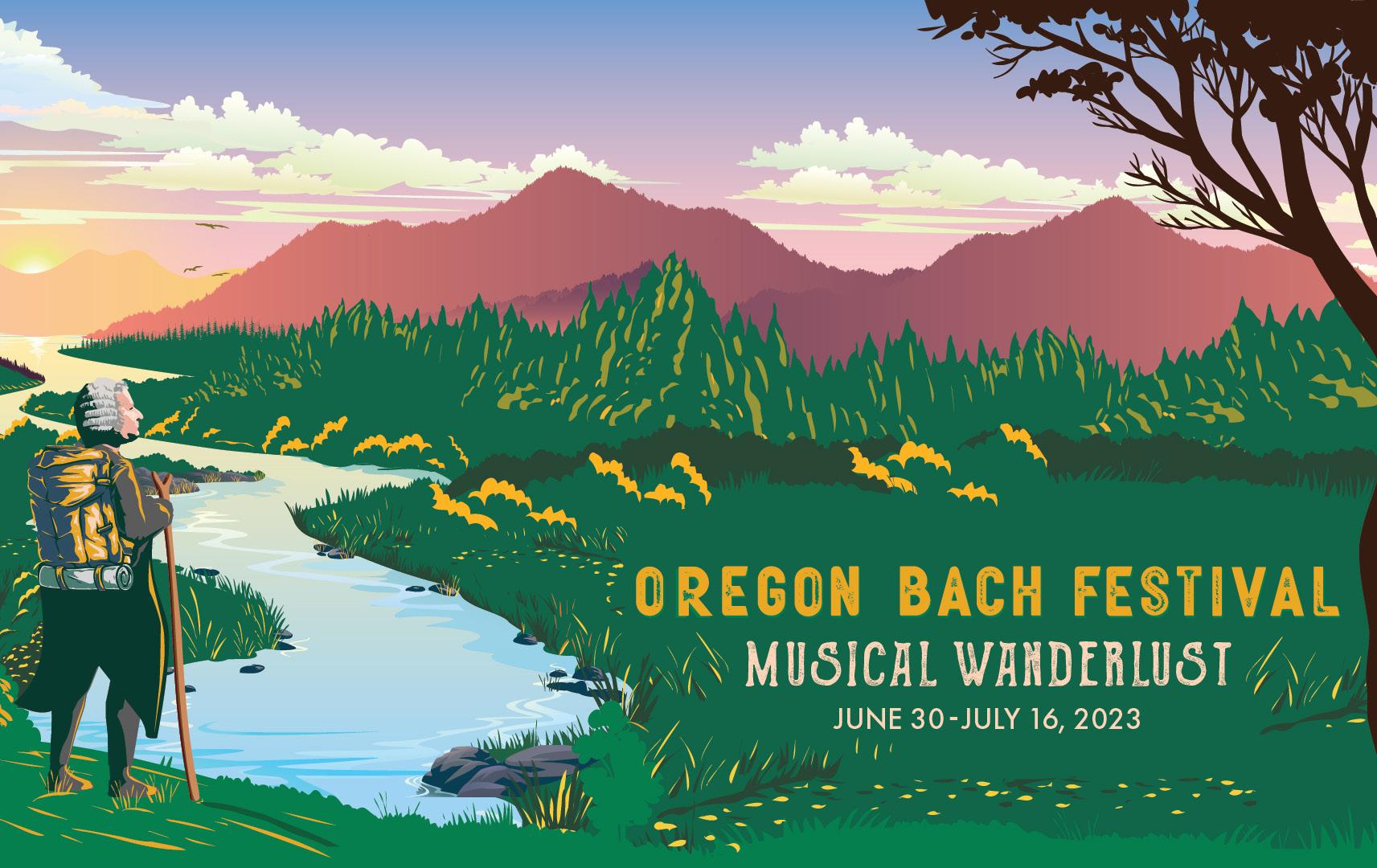
Cincinnati Youth Choir appointed Kathleen Riemenschneider (pictured) to the position of executive director. Riemenscheider has served CYC as director of operations since August 2022.

Los Angeles Children’s Chorus appointed Fred Meads (pictured) to the position of associate artistic director, effective August 1, 2023. Meads, who currently serves as education director for the Princeton, New Jersey-based Westrick Music Academy and music director of the Princeton Boychoir, will succeed current associate artistic director, Mandy Brigham, who will retire at the conclusion of this season. n
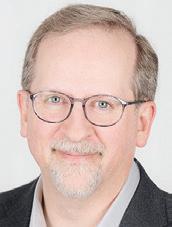


“Listen, baby, you got to use the gifts that you’ve been given.” I said, “Me, I use my voice as a weapon of mass connection.” And that’s when I thought “vocal activist.” That’s how that came about.
Born in the Bronx, raised in Alaska and Texas, and now based in Oakland, Melanie DeMore is a singer, composer, choral conductor, music director, and three-time Grammy nominee. Describing herself as a vocal activist, she leads vocal and stickpounding workshops for choirs and community groups and was a founding member of the ensemble Linda Tillery and the Cultural Heritage Choir.
As someone who believes raising our voices together helps us understand one another and creates real change, DeMore is conducting a plenary workshop called “Seeing Each Other through Song” at the 2023 Chorus America Conference. Before the plenary, she spoke with Chorus America president and CEO Catherine Dehoney about the ways connection and healing can happen when people come together to sing.
CD:
Catherine Dehoney: Tell us about being a vocal activist. I just love that term.
Melanie DeMore: It came about during the time right after the 2016 election. I did a community sing at UC Berkeley. This was planned before the election, and I knew in my heart what the outcome was going to be. Everybody said, “Oh, yeah, we’re gonna have a woman president.” I’m saying, “It’s not gonna happen, so y’all are gonna need some medicine.” And so I was talking to one of my students, and he was so sad and so upset. And I said,
MD:
CD:
“Weapon of mass connection,” that is fantastic. I promise I’ll never steal that without attribution. We definitely need it.
MD:
I’d always been doing community sings and gatherings, and people ask me, “What do I have to do in order to be able to sing with you?” And I say, “Are ya breathin’? Good. That’s the only qualification.” And we need that so much. In my talk, I’ll be talking a lot about why we need to share each other’s music and how important that really, really is, because of what’s happening, because of this huge movement in choral music that we should only sing music in our own culture. Wrong. Poison.
CD:
MD:
It’s true. One of the other sessions at the Conference actually addresses this fear that White conductors have around programming music by African American composers and spirituals. We need to talk about this and to understand where this is actually coming from. So I’m talking about how we can do that and how we can connect to each other in that way. It is a major part of my work right now because I’m working with choirs all over the country in all different circumstances, and people are freaking out. It’s one of those things where you think it’s coming from one place, but really, it’s fed by the opposite. It’s like when people say,” I don’t see color.” And I’m saying, “I know what you think you’re saying, but what you’re saying is that you don’t see me. You think that you’re actually in solidarity with me by saying you don’t see color, but really, you’re saying the opposite.” We have a lot of things like that in our culture where people think they’re doing one thing, but really, the result of it has the opposite reaction.
The main crux is, you have to sing the songs from the point of view of not being White, or Black, or Latino, or whatever, but from being a human being. And how do you connect in those songs? With spirituals, you cannot sing about my ancestors’ journey. But you can sing about your ancestors’ journey. Unless you are a First Nations or Native American person, you are a descendant of immigrants, which means that your grandma and your great, or your great-great-great, made a really difficult journey in order for us to be able to sit here. So when you sing spirituals or whatever it is, what was the journey of your ancestors? You can sing about that because you’re a human being. And these songs come from the desire to be seen as a real person. That’s what the songs are about.

CD:
What was your earliest experience of music? Was that family? Was that church? u
With spirituals, you cannot sing about my ancestors’ journey. But you can sing about your ancestors’ journey. So when you sing spirituals, what was the journey of your ancestors? You can sing about that because you’re a human being.
Family. My mom and dad—brilliant singers, brilliant vocalists. My mom was one of the first Black women offered a vocal scholarship to Juilliard. She did not take it because she didn’t want anybody to tell her when, where, what, and how to sing. She just wanted to sing. I’m just like her. My degree is actually in flute, piano. and music history. There are people I went to college with who never heard me sing, and I’m mostly known as a singer now.
Occasionally I’ll pull out my flute. When I was in high school, I was president of the band. I played flute and piccolo and bass in the stage band. And one day, I was playing guitar for my friend and singing, and the choir director walked by: “Why aren’t you in choir?” I said, “Look, I’m in the band.” She said, “No, why aren’t you in choir?” That’s when I started doing choir.
And my mom and dad did lots of theater. They started one of the first Black theater companies in Alaska in the 60s. I was exposed to all different kinds [of music]. They did German lieder; they did all that kind of stuff. They were in the Alaska Opera Chorus at the time—my mom, stone cold
four-star card-carrying New Yorker, daddy from the hick town, small and deep in South Carolina—and they met singing. My dad was standing behind and my mother turned around and said to him, “You are singing too loud.” And my father said, “That was it. I knew it right then and there.”
So that was a huge influence to me. My mother died when I was 19, and actually, the first funeral I ever sang at was my mother’s. I was 19 and I wrote a song for her, which connects to my work now of singing with and working with Threshold Choirs, which were founded by Kate Munger. There are almost 300 Threshold Choirs. I work with all of them, so I’m a member at large. And usually the first song they learn is “Sending You Light,” which is a song I wrote.
To this day, I have trouble singing at funerals, but it’s such an amazing gift.
To me, that’s song as service right there. That’s really, really important to me, and I think that that’s how we should approach singing all the time, so that when somebody comes to a performance, they should leave feeling bigger than when they came in.
If you are intentionally putting that energy forth, people will feel that. But you have to be intentional about it. When you’re holding your music in front of you, if you don’t think about that music you’re
holding as being invisible, your energy stops right there, which means that people are getting a two-dimensional experience, missing the most important part. And you’ve been to those concerts: Everybody sounds good, there’s not a note out of place, and you’re like, “I don’t care because I’m feeling nothing.” And maybe you’ve participated in those concerts as a singer, and the last thing you’re really doing is singing with joy, because the rules have got you so confined. Your audience may not know what it is that’s not happening, but they’ll know something’s not happening.
Something I really envy because it wasn’t something I was taught very well growing up is having freedom to move to what you are singing. Can you talk about your idea of singing using your whole body?
You’ve got to be conscious of what you’re listening to and how does it feel in your body.
It can’t be separated. I do occasional workshops with the San Francisco Bach Choir, you know, [artistic director] Magen Solomon. They’re not playing around. Those folks can sing. But every now and then Magen will have me come in and do a workshop with them to just get out of this little thing. And they were doing some kind of like Bach, Mozart, deep thing. And

I said, “I want you to sit in a big pack, shoulder to shoulder, put that music down, close your eyes and sing this thing like you’re an amoeba, as one organism. You’re immersing yourself and understanding that the whole ain’t nothing without each and every one of you.” We think about it in these neat little tiny rows, but really, it’s like this mass, beautiful thing that happens. And I said, “Now when you’re standing next to each other in your formation, I want you to go back to that amoeba place.” They sang it and they were all swaying, and it was just so deep.
CD:
When you’re working with a community group or in a prison or somewhere where you’re not expecting there to be choral music experts, do you change your approach?




MD:
Not very much, because it’s kind of a natural thing for us to sing. I always ask people, do they remember their first song? And they’ll start, “Well, I learned the first song…” And I say, “No, your first song happened the day that you were born. That first sound you made, you came into the world singing.” I love working with professional choirs, and I love just going and doing community sings. It’s the whole idea of making a space where people feel compelled to join. It’s like, “I don’t know what’s happening, but I got to be a part of this.” And I always have a part where the audience gets to sing, so they’re like the fifth section, you know, SATBaudience. And I used to tell my students when I was conducting the Oakland Youth Chorus, “At the end of each concert, you’re to go up to three people you don’t know, and you thank them for coming to the concert.” “Ah, man, Melanie, really?” I say, “Yeah, because if they weren’t in the chair, who’d you be singing for? Just realize that you can’t do what you love without them.”
CD:







You started this conversation talking about what you did in 2016 in response to the results of the election. When you think about what working with people was like then compared to now, do you find it very different? This need for mass connection— a weapon of mass connection—feels very important right now.
There’s so much division right now. We have all these mass shootings and all this insanity, and what you have is people reacting because they think that other people don’t see them. Everybody wants to belong to something, and if you feel pushed up to that place where you don’t feel that, what will we do to get attention? Even if it’s just insane? u
MD:
Have you been working with folks across political divides?

I’m going to be part of the WITNESS program next year for VocalEssence, and they want me to re-do a thing I did a few years ago way up north in California. It had been after the murder of another Black person by the police, so they said you have to come, and we need you to do something that perhaps the groups of people have never done. So I got them to get a bunch of pounding sticks and I did two workshops.





The stick-pounding tradition comes from the Gullah South Sea Islands of the United States, which is Georgia, Florida, South Carolina. The folks enslaved there were stolen from around Sierra Leone, and as per usual, all drums and everything were taken away. But the quarters where the enslaved people lived were on stilts. They would take brooms or hoe handles and pound on the wooden floor, which would turn the whole place into a drum. At workshops, I talk a little bit about the origins of it, and then we just simply start counting, I get them
moving their feet together. Then I teach them the basic rhythm: hand clapping, because that’s something they’re more familiar with, then patting the rhythm on their right leg, and then I transfer it to the sticks, four-foot dowels, you know, what I could get at the hardware store.

The second California workshop was about 87 people: about 30 youth of color and all the rest were police cadets and police chiefs. It was at a community college where the police academy was, and I’m in this gymnasium and there were all these kids, and when they came in they are literally confronted by all of these uniforms. And the equalizer was these sticks, because you have to learn how to do it. It does not work unless everybody is completely locked in. Your feet are doing one thing, and you’re pounding, and all these things are happening, and you can’t be going in the opposite direction as the other person. Everybody has to be in sync with each other. And what happens is that people start to listen in a different way and to understand that it cannot happen individually.
That’s important. That’s so important.
And soon they’re talking and stuff and we’re pounding, and you see the kids saying to the cops, “Why don’t you try doing it this way?” because they’re kids and they’re less funny about it. And then I sat them down and I just… I don’t know what came over me. But I said, “You know when I hear about another cop killing another innocent black man, it breaks my heart.” And then I said, “When I hear about a person just indiscriminately killing cops in Dallas, that breaks my heart.” I said, “What if we thought about each other as being somebody’s baby? So when we think about that violence,” I said, “that cop that kills that kid is somebody’s baby who’s just killed somebody’s baby.” And that’s the opening of one of my pieces, “Somebody’s Baby.” It goes, [sings] “Somebody’s baby just killed someone else’s baby leaving somebody’s baby cryin’. When will it all end?” And so I’m saying this in this room with these people, and then I just stopped, and I just started pounding, and they all started pounding and then I could stop, and they’d all stop at the same time. And I didn’t say anything, I just did this. And so pretty soon, we were just all one amoeba again. n

The new home for the San Francisco Gay Men’s Chorus is opening its doors in 2023 to LGBTQ+ artists around the country to share their experiences and develop projects that will strengthen our community now and for the future.
 BY LUCY CAPLAN
BY LUCY CAPLAN
robably the most important thing that we do is that we talk,” Antonio Cuyler reflects. An arts administrator, scholar, and consultant, Cuyler is lead faculty member for the ADEI Learning Lab, a Chorus America program for White-identifying choral leaders who seek to familiarize themselves with core issues related to access, diversity, equity, and inclusion (ADEI); support their colleagues of color; and take action to combat structural racism within their organizations. To take on this work, Cuyler believes, first requires that we “normalize having conversations about race.” Conversation and education, when rooted in a willingness to sit with discomfort and think hard about how best to
“Pcatalyze change, provide the groundwork for meaningful social transformation.
To that end, the Learning Lab’s curriculum, which Cuyler designed in partnership with the social scientist and educator Kumea Shorter-Gooden, emphasizes discussion and collaboration. Conducted online over a four-week period, the program welcomed its first cohort of 32 participants in 2021, and it has since engaged 54 additional participants. The goal is for participants to come away equipped with the necessary knowledge to initiate conversations about ADEI issues within their organizations, and ready to implement constructive change.
The program involves a continual effort, says Cuyler, to “find the right balance between theory and practice,” linking abstract concepts to specific plans of action.
Cuyler encourages participants to draw upon their own expertise in the choral field, while also providing tools they can use to assess their organizations’ current status with respect to ADEI (for example, by creating charts which consider how the organization enables access, representation, equity, and inclusion for audiences, artists, and staff who are members of different marginalized racial groups). The kicker: “What will happen if you don’t change?” In answering this question, participants might realize that while improved ADEI practices have clear social and moral benefits, they can also improve an organization’s long-term financial health and standing in the community. Fundamentally, Cuyler wants participants to grasp that the endur-
Three choral leaders who participated in Chorus America’s ADEI Learning Lab share what happened when they brought what they learned back to their own organizations. What worked, what shifted, and what challenges have they faced as they implement changes?
“These are really important things for a White leader such as myself to know about, so that I can consciously work on building trust in an authentic way.”
–Kara Dwyer
ing impact of White supremacy prevents liberation for all people, including White people who ostensibly benefit from it: “We’re better off joining together and pushing back and fighting against” the violence that racism perpetuates.
As its name suggests, the Learning Lab emphasizes hands-on, experiential learning with a clear potential impact. Learning is real work: difficult and often messy, especially when it reaches the juncture where theory and practice meet. Cuyler’s hope is that participants are “compelled enough by what they’re learning that they keep up the work.” In what follows, three Learning Lab participants reflect on how that work has unfolded since they completed the program, and how they are approaching the process of reckoning with structural racism and pursuing a more equitable future.

For Kara Dwyer, managing director of the Master Chorale of Tampa Bay, the Learning Lab elucidated both the “overwhelming” nature of the “problems in society” that White supremacy creates, and the necessity of taking tangible steps to address those problems regardless. Dwyer attended the program in fall 2021, in partnership with the board chair of the Master Chorale, Tate Garrett. (The Learning Lab encourages participants to attend in groups of two or three, so that ADEI work within their organizations does not end up falling upon a single person’s shoulders.) Like many of her colleagues at arts organizations across the nation, Dwyer was motivated to address ADEI issues with increased urgency after

George Floyd’s murder in May 2020 and the national outcry over systemic racism that ensued.
On the one hand, the experience validated her sense that “I can’t fix everything. It’s not going to be possible overnight with one seminar, and that’s okay.” A single organization has a limited ability to combat systemic problems. On the other hand, though, the program empowered Dwyer to “listen better, ask better questions, and lift up voices not heard enough.” By focusing on “taking care of our house,” she was able to remain focused on taking concrete actions which were both feasible and impactful.
These actions encompass administrative and artistic shifts. For example, the Master Chorale has allocated funding to ADEIrelated training for staff and consulted with an ADEI expert on strategic planning. u
Dwyer has also collaborated with artistic director Matthew Abernathy to program more music by women and composers of color—and, importantly, to incorporate this music into various concerts, rather than keeping it siloed within themed events.
Other changes are smaller in scale, but potentially just as meaningful. The group, for example, no longer requires members to appear onstage with a “natural” hair color (“it’s something that that we feel is not necessary to police anymore,” Dwyer says), and the dress code uses gender-neutral guidance rather than specifying what men or women should wear. Future plans include adding pronouns to singers’ nametags, adopting concert attire that is less gendered in appearance, and referring to different vocal sections with non-gendered terminology.
In the longer term, Dwyer hopes that the group can reduce or eliminate member dues, which can be a barrier to participation. While the Master Chorale, like many choral organizations, is disproportionately White in relation to the region in which it’s located, Dwyer eventually hopes to see “the makeup of our membership be very


similar, if not the same, as the makeup of our community that we live in.” But she notes that an organization that serves adult singers and is affiliated with a symphony orchestra is unlikely to be at the forefront of change in this regard; given the educational background and training that participation typically requires, change may occur more slowly than in a group which caters to children or to singers with a wider range of musical backgrounds.
While some of the changes the Master Chorale has made are straightforward to implement, others require a more nuanced, incremental approach. Given the Learning Lab’s focus on productive conversation, Dwyer has taken particular care to recognize that well-intentioned individuals may be new to talking about race. “For a lot of White people, they don’t know that they don’t know” how to have these conversations, she reflects. She has also considered her own role in workplace power dynamics—something
“Over time, all of those little pieces add up. Maybe not as fast as we’d like, but hopefully in a more meaningful and lasting way.”
–Keri Butkevich
that she’d previously thought about primarily in terms of gender rather than race. “These are really important things for a White leader such as myself to know about,” she reflects, “so that I can consciously work on building trust in an authentic way.”
The group also must consider the social and community context in which it operates. Given the “complex community, politically, religiously, and a lot of other ways” in Florida, Dwyer strikes a balance between addressing contentious issues head-on and trying “not to push it in people’s faces.” For instance, the group might emphasize how music can offer a “common ground” through which audiences and singers “can experience songs that are written about the trials or tribulations or experiences by human beings that are different from you.” The goal is to both acknowledge the specificity of a newly programmed work—honoring how a composer’s lived experience and experience of social marginalization might inform their work—while also finding ways to highlight universally meaningful concepts within the music.

The overarching impact of these shifts remains difficult to ascertain. Dwyer notes that while “there are some quantitative things that you can measure,” and that tools like audience surveys offer useful (if imperfect) metrics, a lot of “how people are feeling” can be more difficult to capture through data, which can’t always convey what it takes to “make sure that people feel welcome, included, and seen.” That intangible quality, though, is at the heart of Dwyer’s approach to change. Her aspiration with respect to ADEI is that “we’re weaving these topics into everything we do,” so that it’s “not just an agenda item on the board meeting,” but rather “part of the fabric” of the organization.
Before attending the Learning Lab in 2021, Keri Butkevich reflects, “I felt like this work was important, but I didn’t know how to engage with it.” As executive director of the Piedmont East Bay Children’s Choir, she was motivated to take part in the program by a “deep desire to do the work
to become a more inclusive organization.”

The experience—and especially its focus on the relationship between race and power, which denaturalizes the assumption that Whiteness is a neutral or default identity— empowered her to “be part of the conversation,” and also to know “when I needed to step back and let other people with more lived experience lead the conversation.”

To Butkevich, ADEI work is less about “transforming things overnight” than it is about embarking on a process of “intentional and deeply rooted” change. In partnership with Colibrí Collaborative, an Oaklandbased consultancy, the choir has facilitated workshops, listening sessions, and other ADEI-focused endeavors; participants have included board members, faculty, and staff. Guided by the board’s insistence that the choir “not just put out a statement and then not be able to live up to it,” Butkevich says, “We’re taking the time. We’re examining all of our systems”—finances, administration, development, programming, and even fundamentals like the group’s name and location—in order to chart a path forward.
Thus far, the process has raised complex questions about the relationship among u

race, power, and history: for instance, how should the choir contend with the fact that it was founded in a town that owes its very existence to redlining, and how can it create a sense of belonging among members within that context? As it grapples with these big questions, the choir is also taking immediate steps. The group is leaning into its longstanding tradition of commissioning diverse composers by engaging them more deeply in partnerships around the commissioning process, and it has made a concerted effort to create welcoming spaces in which members’ families can feel connected to the organization.

Additionally, the choir has made efforts to increase the diversity of its younger classes of singers, thus building a foundation for a more diverse choir overall in the future. An advantage of this approach, Butkevich observes, is that younger singers tend not to be as “cliquey” as middleschoolers and teenagers, among whom the work of fostering inclusion can get more complicated. “It’s one thing to say that everybody belongs, and that everyone is welcome,” she notes. “It’s another thing entirely for a 13-year-old to feel it.”
As Butkevich plans for future changes at the organization, she has embraced a concept which comes from her experience at the Learning Lab: that of being part of a “cadre of gentle disrupters.” Focused on “quiet change that accumulates,” rather than reactive or sudden shifts, this approach places its faith in the value of long-term progress: “Over time, all of those little pieces add up. Maybe not as fast as we’d like, but hopefully in a more meaningful and lasting way.”
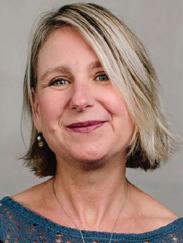
ADEI issues are a mainstay of Rebecca Seeman’s work. She attended the Learning Lab in 2021, while also pursuing a master’s degree in nonprofit administration (her research focused on equity in the choral sector) and teaching in the Performing Arts and Social Justice program at the University of San Francisco—all experiences which have informed her work as
director of the Bay Area chamber chorus Sacred and Profane. The Learning Lab’s particular focus on “self-investigation” proved especially fruitful: Seeman reflects that as a self-identified “California progressive Jew” used to “going after people whose views I found to be prejudicial,” she found herself thinking critically about positionality and power and becoming more aware of when to lead a conversation and when to listen. At the same time, Seeman observes that as conversations around ADEI become more prevalent across the arts and culture sector, it’s vital to recognize that fluent discussion of topical issues doesn’t always translate into meaningful change. “We can talk about these things in nice little, pretty ways,” she observes, “but there are concrete and real things that happen along the way that are very complicated.”
At Sacred and Profane, one major area of change was programming. Seeman’s work at USF had ensured that “a focus on social justice had for years really influenced the way I think about programming,” but in the aftermath of George Floyd’s murder in 2020, she made more dramatic shifts: She signed the Black Voices Matter pledge and reoriented the season to focus on music by Black and Brown composers, as well as music “focused on community and well-being and health.” Since then, the group has commissioned several works by composers of color and LGBTQ composers; this past season, for example, they premiered a new work by Michael Bussewitz-Quarm about her experience of gender transition.
Yet as meaningful as such experiences have been, Seeman cautions that “programming is the easy place” to make change, given its relative ease of implementation. Sacred and Profane has also created an extensive action plan with goals and benchmarks for future work. “It’s easy to put out statements,” she says,
“It’s easy to put out statements, but I think action plans hold you to the fire.”
–Rebecca Seeman
“but I think action plans hold you to the fire.” For example, the group has committed to holding concerts in public spaces where people already gather, rather than singing exclusively in dedicated venues; to holding concerts in accessible, free spaces that welcome young children; and to reducing or eliminating ticket prices whenever possible.
Seeman has also sought out opportunities for the chorus to take part in “non-musical things to participate in the community”; for instance, by delivering food and volunteering during the pandemic.
As an “advanced non-professional ensemble that is really advocating for these ideas,” Sacred and Profane occupies a
unique position. Perhaps unsurprisingly, then, the past few years’ changes have prompted a variety of responses among the group’s members. Seeman notes that while some are eager to take part in community engagement, others have joined the group primarily because of its artistic merits. Similarly, in seeking to foster a more racially diverse chorus, Seeman has learned that this process is intertwined with, but not identical to, diversifying the group’s repertoire and policies (for instance, she notes that a Black singer with conservative political views might be less interested in singing music by a composer whose work reflects an overtly progressive viewpoint). Yet this observational information goes only so far; in the future, Seeman is interested in collecting additional qualitative and quantitative data to assess the group’s progress. Most fundamental, she says, is “continuing to reference back to the action plan and to our values, and make sure that the decisions that we make are rooted there.” n

Lucy Caplan is a writer and scholar based in Cambridge, Massachusetts. She teaches at Harvard University.
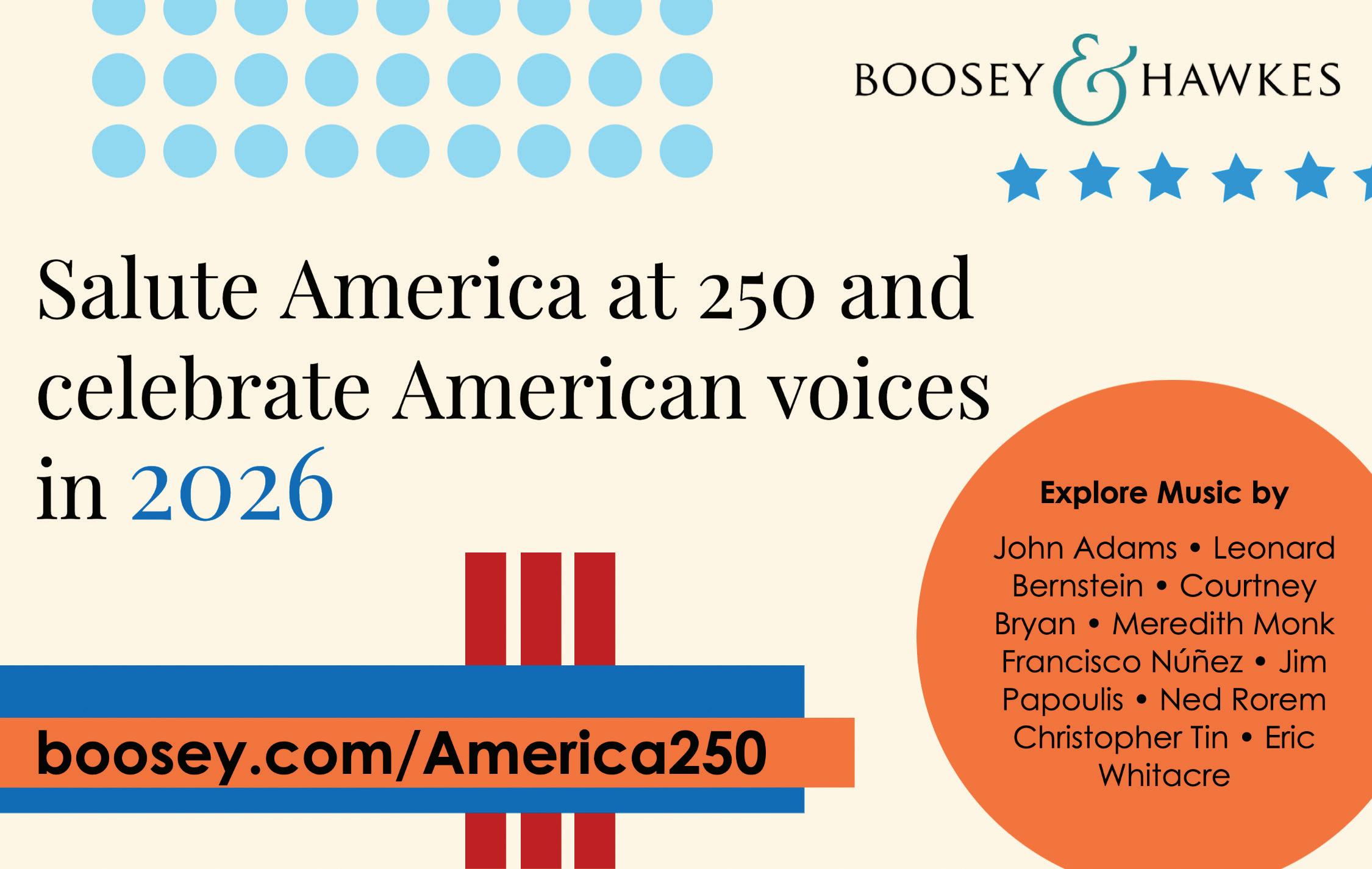




These practical strategies will help you refocus and reinspire your board.
BY SUSAN HOWLETTThe past three years have been challenging ones for nonprofit boards. During the pandemic, some board members leaned in too closely while others pulled way back, and the ones who stuck it out with us are tired.
We need our board members to be strategic governors, compelling ambassadors, and powerful fundraisers, but how do we get them refocused and reinspired? Here are some practical, no-cost tips to get you going and help you along the way.
Problem You’re Likely Facing: You need your board members to focus on strategic direction and big picture topics like your role in the community and your financial sustainability over time, but they seldom get the opportunity to engage in authentic governance because
• There are too few people doing all the work, doing most of the talking at meetings, and ending up exhausted.
• Board meetings are filled with reports and committee work, not opportunities for generative discussions and strategic leadership.
Solution #1: Engage more people in leadership roles so your board members aren’t overworked. That way they’ll have the bandwidth to focus on overarching issues that affect your long-term health.
We’ve all struggled to get people to volunteer during the last few years. That could be because the tasks we’re asking them to take on are too big. What if we broke down assignments into much smaller pieces and asked more people who aren’t already on the board to do them? Rather than committees, create “disappearing” task forces so participants can feel a sense of accomplishment after just a few meetings. Just make sure your task forces are chaired by board members who can keep the work tied to your strategic priorities and the work of other teams.
You can use these short-lived projects to engage people who are longing for connection and purpose, not the usual suspects. The more you ask them to do for your organization, the more ownership they’ll feel, which leads to loyalty and generosity and ambassadorship. Here are some ideas for where to find people you could invite to take on more bite-sized assignments:
• People associated with the venues where you rehearse or perform
• People taking classes in nonprofit management or arts management at a nearby community college
• Current participants or alumni of leadership development programs through your Chamber of Commerce or state association of nonprofits
• People who live in nearby retirement homes
• Current or retired music educators or staff at high school or college music programs
• Partners or family members of your singers and musicians
• Parents of your children and youth chorus or education program participants

• Members of church choirs who want to broaden their circles or hone their skills
• People with disabilities who want to feel more integrated into the community (such as members of the Stroke Association, Brain Injury Association, or inclusion advocacy groups)
• Select donors or sponsors
As you examine the kinds of jobs that wear out your board members, you may discover that many of them don’t actually need to be done by someone who is part of your governing board. Peel those tasks off and give them to others who may benefit from taking them on. Perhaps they want to meet new people, learn or practice new skills, gain experience they can add to a resume, feel a sense of accomplishment outside of their job or home, or feel like a chorus insider. Inviting them to contribute will be a win-win for everyone, lightening the load for busy board members so they can focus on more strategic issues.
Solution #2: Design your board meetings to focus on matters of consequence.
Many board meetings consist largely of reports—from top staff, from the treasurer, from the board chair and committee chairs—covering activities that have already taken place. Instead, insist that all reports be sent out and read prior to the meeting, leaving room during the meeting for rich conversations about strategic priorities and the long-term health of your chorus.
If you find board members aren’t reading the materials ahead of time, you can help foster a culture of accountability that encourages preparation. One group gave a little quiz at the beginning of each meeting, asking people to answer questions based on what they’d read. Another group that usually served wine at meetings withheld each person’s drink until they could prove they’d read the reports. Some report authors have buried funny or alarming things in their reports to see who reacted. And one board member who was u
We’ve all struggled to get people to volunteer during the last few years. That could be because the tasks we’re asking them to take on are too big.
frustrated by others not taking responsibility simply said, “I feel betrayed by my fellow leaders when I spend time preparing for these meetings and others don’t. I thought we were all in this together. Can we make a renewed effort to come prepared to lead, not just listen?”
It could be that the reason people aren’t absorbing the pre-meeting materials is that they are boring and less than relevant to the full board. What if each report followed a format that triaged the most important (need to know) information in the first few lines, and used the rest of the report to offer the backstory and details (nice to know)? What if each report tied its work to strategic goals, rather than offering a litany of everything done since the last meeting? And what if the writer of each report clarified up front what action they need from the board?
Build board meeting agendas around your strategic goals so they stay top of mind all year long and allow adequate time to discuss meaty topics that will help you achieve those goals. Have the appropriate committee or task force frame a question that will contain the conversation so it doesn’t go off the rails. And send helpful information, such as the pros and cons concerning a proposed next step, in advance so people arrive prepared for a robust discussion. Encourage the board chair to invite everyone to participate, especially the quiet people who don’t usually speak up, and ask those who usually chime in first to pause before speaking to make space for others.
If you shape your board meetings so that they’re forward-looking and big pictureoriented, you’ll find your leaders energized by the meetings and eager to focus on strategic governance.
You’re Likely Facing: Board members know they’re supposed to be spreading the word about your organization’s mission and work, but
• They’ve already exhausted their own circles and don’t know who else to approach.
• They don’t know how to promote your work in a compelling way.
Solution #1: Focus board outreach efforts on particular constituencies.
Rather than assuming that the entire community could be prospective audience members, volunteers, or donors, prioritize
two or three types of groups and assign board members to reach out to them. Here are some ideas to stir your imagination about groups to prioritize:
• People who used to be on your board or in your chorus
• Former sponsors or donors
• Choir directors, choir members, and congregants of specific churches and places of worship
• Community orchestras that might have shared interests with your chorus
• Nearby retirement communities— especially those with their own buses
• Organizations that serve people of color (think of sororities and fraternities, like those in the National Association of Latino Fraternal Organizations, or affinity groups at particular employers, like Blacks at Microsoft)
• Professional associations (think of associations for music educators, special education teachers, musicians or composers, or mental health counselors)
• Service clubs (like Rotary, Kiwanis, Lions, Soroptimists, or Junior League)
• Fraternal organizations (like Eagles, Elks, Odd Fellows, Eastern Star, or Masons)
• People who sang in a chorus when they were younger but don’t now
Tell board members they can offer discounted or comp tickets to entice people from these groups to attend a performance for the first time, and station someone at the entrance to your concerts to greet newcomers. Consider hosting a brief gathering for groups of newcomers after a concert so that they feel welcomed.
Solution #2: Prepare your board members so they feel equipped to initiate conversations with people about your organization.
Have board members list the places they find themselves during the week so they can see how they might run into folks while watching their kids play soccer, or at coffee hour at their synagogue, or at a regular meeting of their service club, book club, or affinity group. Then, rather than thinking in terms of convincing people to attend a program, show them how to ask open-ended questions that engage the other person in conversation. Open-ended questions don’t have yes or no answers, so brainstorm questions together that will help them discern someone’s interest in learning more. “What was your first concert (of any kind)?” or “Who turned you on to music?” are good starting points.
Make sure to practice asking these and then following up with another question
Susan Howlett’s website shares more information about how to strengthen your board. Visit susanhowlett.com for information about her book Boards on Fire! and free resources including:
• Resources for planning board meetings
• Board committee report templates
• Examples of open-ended questions
• Videos on donor retention and donor engagement
after the other person responds. This is a muscle we’re not used to flexing, and we all need to get better at it!
Also, focus your board on articulating what impact your chorus makes, not on what you do. This is another area where we’re not particularly adroit, so spend some time at a board meeting figuring out how to share what difference you make for end-users, whether that’s your singers, your audience members, or others in your community. You may want to offer questionnaires to your singers or exit surveys to your audience members to discover how they describe your impact.
If we equip our board members with clearly identified stakeholders to approach and help them get comfortable engaging new people in conversations about your work, they’re more likely to succeed at this critical aspect of their role and champion your organization wherever they go.
More Effective
Problem You’re Likely Facing: Board members know they’re supposed to help garner financial support for your chorus, but
• They’ve asked all their friends to donate and they don’t know anyone with money.
• They equate “fundraising” with “asking for money”, which they don’t like to do.
Solution #1: Show board members that the most effective thing they can do to generate revenue is to keep the donors you’ve already got.
Donor retention across the nonprofit sector is very low, and the reason is benign neglect. Adopt this fundraising strategy: “Don’t lose anybody!” If board members pay more attention to the donors who have supported you in the past, they’ll be doing their job. u


In priority order, they should shower love on anyone who gave you money during the last year, anyone who volunteered, and the people who attended your programs. If they have bandwidth after that, they should focus on people who gave in the recent past but not last year, former board, former staff, and former volunteers. A special focus on donors who’ve just given for the first time will result in the highest return on their investment of time and energy.
If board members have a plan for attending to these core constituents and spend their time deepening people’s sense of connection with the chorus, you’ll see increases in loyalty and generosity and those very people will bring in new audience members and new donors because they’re having such a great experience. So what does such a plan look like?


Solution #2: Create a fundraising plan that focuses board members on stewardship, not asking for support.
If we focus our leaders on raising money, they might burn bridges on their way to meeting a goal. But if we focus them on connecting key stakeholders to our work, we will end up with devoted fans and money!
Research tells us what people are longing for when they support a nonprofit, and the same research tells us that they’re not getting what they yearn for when they give. So create a plan for board members to deliver what donors want, and money will show up, regardless of the mechanisms you offer for giving.
Donors want to feel seen and heard and known and valued by the organizations they support. They want us to acknowledge that they’ve been coming to our concerts for years, or that they’ve volunteered or made in-kind gifts of goods or services, or that they’ve contributed money on top of their ticket purchases for years. They want opportunities to share their own stories of how our music has affected them and why they care about us. So create opportunities for board members to share gratitude through phone calls, handwritten cards, or at in-person events like post-concert receptions.
Donors want to know that their support has made a difference, touched someone, or changed something. So enlist board
members to share stories of impact about your singers, your audience members, people you’ve sung for in the community— even your sponsors and other donors!
The most compelling stories are about one person at a time, not groups of people, and donors don’t need to hear grandiose results. Hearing that someone felt a sense of belonging is powerful. Or that someone who wasn’t sure about their singing now feels confident. Or that someone in your audience savored hearing live music in community again after feeling isolated. Donors want to feel a sense of belonging to something bigger than themselves. And board members can create that by inviting people into authentic experiences of your mission. Invite a donor to attend a rehearsal and stand in the middle of the singers, completely surrounded by the music. Board members could invite donors to attend a conference call or Zoom call with the chorus’s music director or other top staff, during which they’d get insider information about the next season. Leaders could ask donors for quotes or stories about why they give, to be used in your program or social media. Or invite donors to be part of a task force or survey or private conversation in someone’s living room over a glass of wine. Being included in special moments helps donors feel like they’re partners in the life of the chorus.
If we invite our board members to prioritize relationship building over asking, and to prioritize the people we’ve already got over getting new people, our leaders will feel safer and more comfortable with the process of generating revenue—and they may not even have to ask! People who’ve been thanked and included will give more whenever they’re asked, whether it’s through mail, email, an event, or additions to their ticket purchases. And your board members will be happier too.
Your board members want to be an asset to your organization, but they need to be focused on the right conversations, the right people, and the right opportunities. Hopefully these suggestions will give you direction as you work to strengthen your board. n


You’ll need our Conference app to access additional Conference schedule details, the most up-to-date information, maps, and more. Be sure to download the Guidebook app on your phone or mobile device.
• Download the Guidebook app.
• Tap “Find Guides” at the bottom right of the screen.
• Tap “Have a passphrase?” at the bottom of the screen. The passphrase is “choruscon2023.”
• Tap the Download button. Questions? Ask at Registration.
Plenary Workshop— Time to Pivot: Reclaiming Relevance to Rebuild Cultural Audiences 3:00–5:00 pm, Grand Ballroom Speaker: Ruth Hartt Daily Sing: Deke Sharon
KEY
n Conference Programming
n Public Event
n By Invitation
n Ticketed Event
One-on-Ones
Morning Coffee
Opening Night Concert: San Francisco Gay Men’s Chorus, Oakland Interfaith Gospel Choir, Ragazzi Boys Chorus 7:30–9:00 pm, Mission Dolores, 3321 16th Street (see Conference app for busing info)
Opening Night Reception 9:00–11:00 pm, Pacific Terrace
DCINY Fun Run/Walk/Crawl, 7:00 am
Plenary Workshop
The Great Imagining: Envisioning and Manifesting an Antiracist Choral Field
9:30 am–12:00 pm, Grand Ballroom
Speakers: Antonio Cuyler and Karla Estela Rivera
Daily Sing: Michael Abels Annual Meeting and Awards Recognition
Plenary Workshop—
Seeing Each Other through Song
9:30–11:30 am, Grand Ballroom
Daily Sing and Speaker: Melanie DeMore
Lunchtime Concert: Chanticleer, International Orange Chorale of San Francisco
12:30–1:30 pm, Phyllis Wattis Theater
SFMOMA, 151 Third Street (Use entrance at 188 Minna Street; Conference badge needed for entry)
Breakout Sessions
2:00–3:00 pm
Roundtables
3:00–4:00 pm
Intercontinental Ballroom B+C
Peer Forums
4:00–5:00 pm
Intercontinental Ballroom B+C
Champagne with Chanticleer
6:00–6:45 pm, Pacific Terrace
Love Notes: A Gala Celebration and Auction
7:00–10:00 pm, Grand Ballroom
Former Board Lunch
12:00–2:00 pm University Club of San Francisco, 800 Powell Street
Leadership Development Forum 12:00–2:00 pm Golden Gate
Music Education Partnership Grants Reflection Lunch 12:00–1:30 pm Grand Ballroom B
Breakout Sessions
1:30–2:30 pm
Exhibitor and Composer Showcase
2:30–4:00 pm
Grand Ballroom Foyer and Grand Ballroom A
Corporate Connections 4:00–5:00 pm, Pacific Terrace
Breakout Sessions
4:00–5:00 pm
Closing Concert: Kitka, Peninsula Women’s Chorus, Piedmont East Bay Children’s Choir, San Francisco Choral Artists, The Choral Project, Volti, San Francisco Girls Chorus
7:00–10:00 pm
Grace Cathedral, 1100 California Street (see Conference app for busing info)
Chorus America’s Awards Program recognizes remarkable individuals and choruses for their meaningful contributions to the choral community. Our 2023 awards were announced in May and recognized during the San Francisco Conference. Visit chorusamerica.org/awards to learn more and view video tributes to the award winners.
This award is given by Chorus America to a member whose long-term service to the choral field significantly furthers Chorus America’s mission “to strengthen singing communities with the advocacy, connections, and resources they need to be a vital part of society.”
• 2023 Recipient: Roland M. Carter


This award is given in memory of Margaret Hillis, founder of the Chicago Symphony Chorus, for her more than 40 years of professional achievement and outstanding contributions to the choral art. The award is presented annually to a member chorus that demonstrates artistic excellence, a strong organizational structure, and a commitment to education and community engagement.
• 2023 Recipient: Volti (below)
Chorus America established this award in 1978 to recognize an individual with a lifetime of significant contributions to the professional choral art. The award’s name honors Michael Korn, one of the founders of Chorus America and the organization’s first president.
• 2023 Recipient: Robert Geary

This award honors the life and achievements of educator, conductor, and arranger Brazeal Dennard by recognizing individuals or organizations whose work builds upon his commitment to diversity, inclusiveness, and furthering African American and other diverse choral traditions through performance, research, or the creation of new compositions of significance.
• 2023 Recipient: Marques L. A. Garrett
Chorus America and the American Composers Forum partner to present this

award in honor of Dale Warland’s lifelong commitment to new music as embodied through his work with the Dale Warland Singers. The award is made possible by the Dale Warland Singers Fund for New Choral Music, a permanently restricted endowment fund. The winning chorus receives a cash award of $10,000, $7,500 of which supports the commissioning fee and $2,500 of which supports engagement with the project composer, and production and promotion costs to present the project.

• 2023 Recipient: Cantori New York (above) and Adolphus Hailstork (inset)

This award is given for outstanding programming in education and community engagement, honoring in-depth and ongoing projects that deeply affect communities.
• 2023 Recipient: SACRA/PROFANA (top)
This award supports the composition and thoughtful presentation of choral music based in the traditions of Black and Latinx
communities. This award recognizes the exemplary work of a Black or Latinx composer or an ensemble that respectfully and authentically presents works incorporating these traditions and experiences.

• 2023 Recipient: Cantus (above)
This award is given to individuals, corporations, or foundations whose financial
support of Chorus America and the choral art has been especially significant and generous.


• 2023 Recipients: John Alexander (left) and Duain Wolfe (right)

Chorus America gratefully acknowledges these businesses and organizations for their support of the 2023 Chorus America Conference.
LEAD CONFERENCE SPONSOR
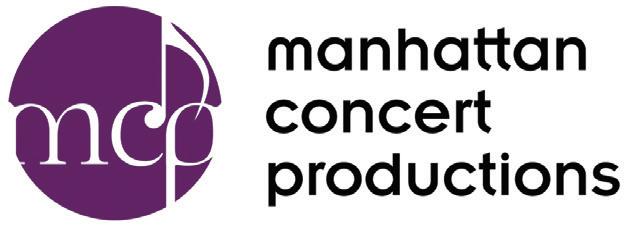
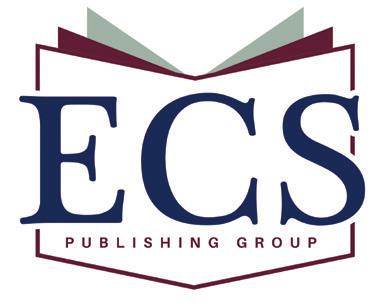

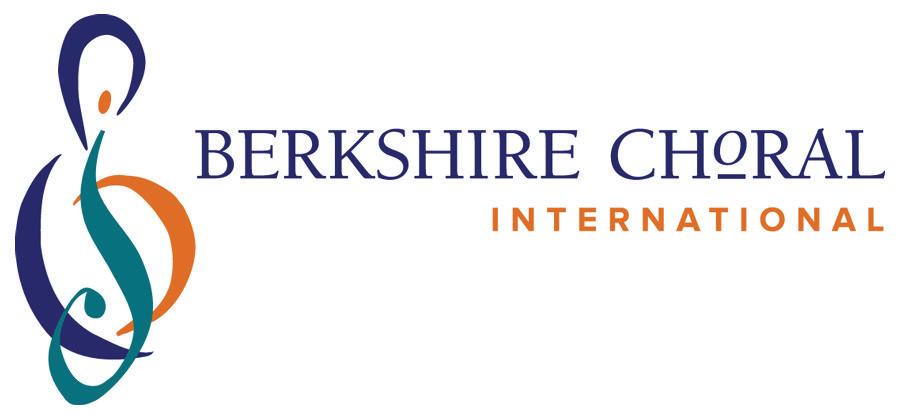

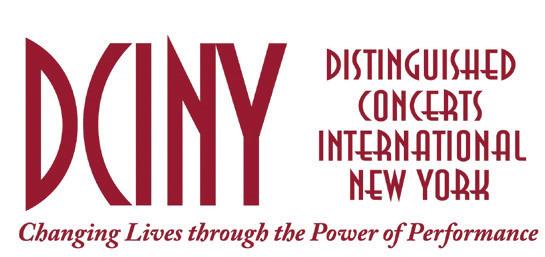




SILVER SPONSORS
GENERAL SPONSORS
MAJOR SPONSORS
GOLD SPONSORS
SPECIAL UNDERWRITING
Chorus America is deeply grateful to the following funders for their generous support of the Conference.
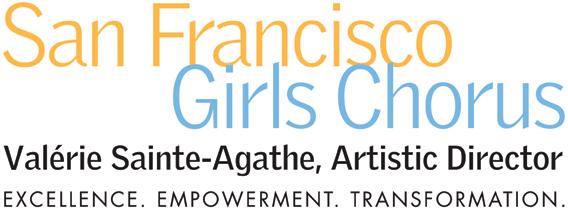

John C. Griswold Family Foundation
Popplestone Foundation
BRONZE SPONSORS
This project is supported in part by the National Endowment for the Arts.

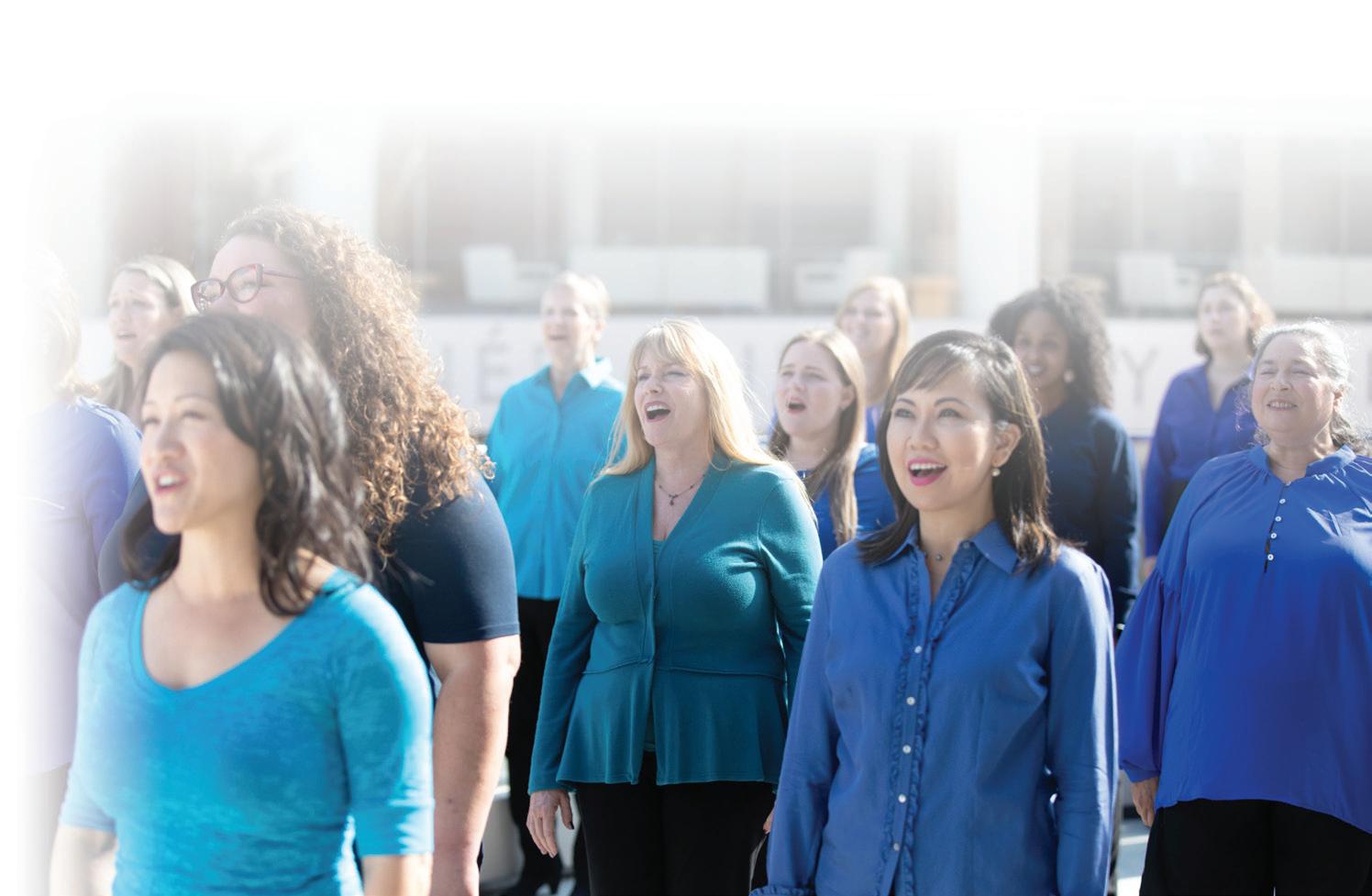
Chorus America is grateful for the support of businesses and organizations whose work aligns with our mission of strengthening singing communities with the advocacy, connections, and resources they need to be a vital part of society. Their engagement makes an impact on the Chorus America community, and we are proud to highlight our corporate partners from September 1, 2022–April 28, 2023.

For nearly 70 years, ACFEA Tour Consultants has helped choirs connect with the world around them. By listening to each choir’s touring needs and goals and combining them with our travel expertise and passion for music, we create the opportunity for them to have life-changing experiences.
ACFEA Tour Consultants is a proud supporter of the Chorus America community and looks forward to welcoming Conference 2023 attendees to San Francisco. Learn more at acfea.com
Lead Sponsor & Exhibitor, Conference 2023 Sponsor, Choral-Orchestral Conducting Academy 2023
Founded in 1975, American Music Abroad has organized over 320 musical tours with a specialization/concentration on Western Europe involving over 37,000 participants. We do not compromise quality. You can be assured of not only our integrity, but our willingness to serve the participant’s best interests at all times. Learn more at americanmusicabroad.com.

Exhibitor, Conference 2023
Arts People, a NeonOne company, is a ticketing and fundraising software solution designed and affordably priced specifically for smaller and mid-sized arts organizations. We work with choruses of all sizes to

help streamline practices, increase their revenue, and grow their organizations overall. Please visit our booth at Chorus America 2023 in San Francisco or you can learn more at neonone.com/ products/arts-people
Exhibitor, Conference 2023
Berkshire Choral International

Berkshire Choral International is bringing a spirit of adventure and belonging to adult education for choral singers by creating experiences that explore and elevate the full range of choral music expression. Learn more at berkshirechoral.org
Silver Sponsor, Conference 2023
Sponsor, Choral Executive Leadership Academy 2023
Cathedral Choral Society

In addition to proudly serving as the presenting partner of the Choral Executive Leadership Academy, Cathedral Choral Society is working to build a more equitable musical community through projects like our I, Too, Sing America partnership with Heritage Signature Chorale. This project highlights the contributions African Americans have made to America’s musical culture, both through live performances and video installments. Learn more at cathedralchoralsociety.org.
Silver Sponsor, Conference 2023
Presenting Partner, Choral Executive Leadership Academy 2023
Chanticleer
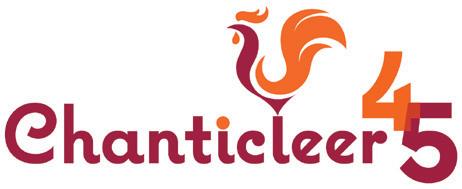
Choral singing creates vital communal bonds through collective purpose and empathy.
Chanticleer fosters that connection wherever we are on tour. We work with ensembles of all skill levels across the country to support their music making, to grow and encourage their love of choral singing, and to help build their shared community. Learn more at chanticleer.org.
Gold Sponsor, Conference 2023
Choir Genius
Choir Genius is a popular online community management system used by hundreds of choruses. It gives you everything you need, from member, patron and donor management, selling tickets and merchandise and accepting donations, to musical features like distributing music and creating standing arrangements. Try our new app for iOS and Android devices! Learn more at choirgenius.com.
Exhibitor, Conference 2023
The Choral Arts Society of Washington
Choral Arts is honored to support the development of the next leaders in the choral field through the new Choral Executive Leadership Academy, a critical program to ensure these leaders’ voices are heard, respected, and exalted. Learn more about Choral Arts at choralarts.org.

Sponsor, Choral Executive Leadership Academy 2023
Chorus Connection
At Chorus Connection, we’re all about making your life easier. Our chorus management software will streamline your operations, and we’ve got tons of free resources on marketing, fundraising, DEI initiatives, pandemic challenges, and more. Learn more at chorusconnection.com

Exhibitor, Conference 2023
DCINY
Distinguished Concerts International New York (DCINY) is the leading producer of world-class concert experiences. We bring musicians and vocal artists from around the world together for collaborative performances with renowned conductors, changing lives through powerful musical performance. Learn more at dciny.org

Gold Sponsor & Exhibitor, Conference 2023

The ECS Publishing Group is supportive of the ADEI work of Chorus America and has been very active in working to find and publish the work of underrepresented composers. We are continually expanding and diversifying our catalog with significant numbers of new composers, and we embrace the work of composers writing pieces that address current events and concerns. These works help choruses reach out to their audiences in ways that create change. Learn more at morningstarmusic.com
Silver Sponsor & Exhibitor, Conference 2023

Walton Music and GIA Publications Music Education division provide music and resources that help singing communities function and thrive. A deep connection exists with our community choir customers, and we feel that our music helps choirs to better understand and empathize with the people of their communities. Learn more at giamusic.com
Exhibitor, Conference 2023

JackTrip Labs enabled choruses to continue singing throughout the COVID-19 pandemic. Today, we enhance in-person programs through virtual rehearsals, online performances, and enabling virtual programs to extend geographic reach. JackTrip now includes video and no longer requires specialized hardware. Learn more at jacktrip.com.
Exhibitor, Conference 2023
Designed around the Justice Choir Songbook and built to encourage more community singing for social and environmental justice, Justice
Choir is a grassroots movement to engage in the empathetic, collaborative, and collective power of singing together to create change. Support for Chorus America’s ADEI programming comes directly from gifts shared by those downloading the Songbook. Learn more at justicechoir.org.

Sponsor, Choral Executive Leadership Academy 2023 u

KI Concerts partners with ensembles of all levels and backgrounds to create unforgettable international performance tours. We provide 24/7 travel assistance so you and your choir can explore the world of music and perform in renowned venues for warm local audiences. Learn more at kiconcerts.com

Gold Sponsor, Conference 2023

Sponsor, Choral Executive Leadership Academy 2023
Manhattan Concert Productions
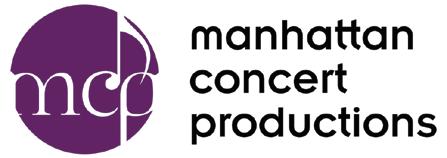
Manhattan Concert Productions celebrates 24 years of offering professional collaborations, exceptional performances, and educational opportunities to thousands of choral and instrumental musicians of all ages through our acclaimed series set (Masterwork, Octavo, Youth Choir, Symphonic, Debut, and Broadway). Like Chorus America, MCP Performance Group is committed to supporting all aspects of the choral field, and its offerings also include CODA Concerts, Fine Arts Fundraising, and our new online learning center, Forward Motion. Learn more at mcp.us Bronze Sponsor, Conference 2023
May Festival Chorus
Cincinnati’s May Festival Chorus is celebrating 150 years of engaging, energizing, and connecting their community through choral music. As a leader and catalyst for growth in the choral field, the May Festival Chorus is proud to support the participants of the first ever Choral Executive Leadership Academy, as well as Chorus America’s expanding ADEI programming. Learn more at mayfestival.com
Sponsor, Choral Executive Leadership Academy 2023
Music on your iPad? Singing with sniffling sopranos? Sonata Problem! MyMusicFolders.com offers innovative solutions for modern musicians. We are on a mission to “Make the World More Musical”! Learn more at MyMusicFolders.com. General Sponsor & Exhibitor, Conference 2023

Perform International
Perform International seeks to “build bridges and transform lives through the power of music”. In all experiences we curate, we offer opportunities for the Chorus America membership to make connections, celebrate diversity of people and performance, and share in the beauty of humanity with choral music. Learn more at perform-international.com

Exhibitor, Conference 2023

The Performing Arts Readiness project helps performing arts organizations nationwide learn how to protect their assets, sustain operations, and be prepared for emergencies. PAR provides connections and resources to help the singing community build resilience to overcome emergencies and disasters. Learn more at performingartsreadiness.org.
Bronze Sponsor, Conference 2023


Redmint is a holistic solution for modern day wellness with services and products that are transformative, preventative, and restorative in nature. Redmint embraces the principles of Traditional Chinese Medicine that all things—including music and sound—exist as inseparable elements, forming the foundations of a truly healthy, interconnected, and balanced lifestyle. Learn more at redmint.com.
Exhibitor, Conference 2023
We believe in the power of music to build community, inspire activism, and foster compassion. Like Chorus America, we celebrate the vision of a vibrant society in which diverse singing communities affirm and share the full range and depth of our humanity, and we are excited to welcome the 2023 Conference to our home city. As we work and dream in our new home, the Chan National Queer Arts Center in San Francisco, we take pride in being a catalyst for connection, bringing together artists of all ages, backgrounds, and genres to create, inspire and lead. Learn more at sfgmc.org
Major Sponsor, Conference 2023
SBarer Music is the publishing arm of composer Sergio Barer. Learn more at sergiobarer.com
Exhibitor, Conference 2023
See-A-Dot Music Publishing empowers conductors and singers to perform innovative and adventurous choral music that speaks to the musical, social, and spiritual conversation of our time by providing a curated catalog of contemporary pieces and rehearsal resources that make them accessible to perform. Learn more at seeadot.com
Exhibitor, Conference 2023


Subito Music Corporation is widely recognized as a leader in the concert music publishing industry with a reputation for publishing, producing, and distributing the finest quality music with state-of-the-art service. At Subito Music, practical innovation and outstanding service to the choral community are our hallmarks! Learn more at subitomusic.com
Exhibitor, Conference 2023



At VocalEssence, we engage people of all ages and cultures in our community through innovative, enticing choral music programming. Through “Songs from the Heart”, VocalEssence uses the power of choral music to engage young mothers and their babies in shared music creation and singing experiences, living out our core value to celebrate singing as essential human expression. Learn more at vocalessence.org
Sponsor, Choral Executive Leadership Academy 2023
graduate choral & orchestral conducting program co-directors James Bagwell and Leon Botstein
The Washington Chorus, under the artistic leadership of Eugene Rogers, is an inclusive choral community where musical experiences connect, reflect, and inspire everyone. The organization works to create transformative musical experiences that bring people together, and promotes diversity, inclusion, access, and equity across the choral community. Learn more at thewashingtonchorus.org.
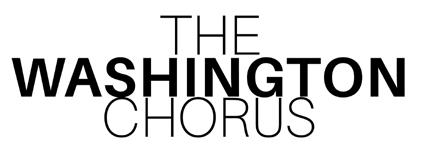
Sponsor, Choral Executive Leadership Academy 2023

At Witte Performance Tours, no two tours are alike. Your group receives individual attention, and your tour is created based on your group’s needs. Whether you want to sing in the great cathedrals of Europe, perform in friendly village churches, or make music under the stars on an open-air stage, we help you and the entire Chorus America community share talent with worldwide audiences. Learn more at wittetravel.com/group-tours/performance-tours Exhibitor, Conference 2023
All students receive ample podium time working with community, collegiate, and professional ensembles including:
Bard Conservatory Orchestra
Bard College Community Orchestra
Bard Chamber Singers
Bard Conductor’s Chorale

Bard Symphonic Chorus Conductor’s Ensemble
The mission of the Bard Conservatory is to provide the best possible preparation for a person dedicated to a life immersed in the creation and performance of music.
845-752-2409 bard.edu/conservatory conservatoryadmission@bard.edu

In January 2023, Chorus America’s board of directors adopted a new Strategic Plan. The plan articulates a new Vision, Mission and series of Guiding Principles for our organization, as well as three Strategic Objectives and accompanying goals that will shape our work during FY 2023–2025. Our new Strategic Plan builds on lessons learned about remaining flexible in the face of rapid change and ensuring the strength and relevance of the choral field. It deepens our commitment to meaningful, measurable action steps that ensure representation of and service to the vibrant diversity of the choral field, especially to those marginalized because of race and ethnicity. It is a living document, which will be reviewed often to keep us accountable to our commitments and goals in a fast-moving world. Read the full Strategic Plan at chorusamerica.org/ about/strategic-plan.
Chorus America currently has 1,102 members and serves over 6,670 individuals through their affiliations with choruses, industry-wide businesses, and other member
organizations. This fall, we adopted a new dues structure that distributes membership dues more equitably across budget sizes for our chorus members, making membership more accessible—and affordable—for choruses with small and mid-sized budgets. As the choral field continues to recover from the economic impact of the pandemic,
n Individual (42.12%)
n Student (4.21%)
n Business/Affiliate (3.66%)
n Choruses up to $120,000 (27.84%)
n Choruses $120,000–$1 million (18.04%)
n Choruses $1 milion+ (4.12%)
we’ve seen a positive impact on our membership numbers: Individual memberships have increased 5% since the end of last fiscal year and chorus memberships have increased by 2%.
The Chorus America Online Community, a new member benefit launched at the end of last year, continues
to grow. The Online Community offers a secure online space where members can connect, ask questions, share ideas and resources, and have conversations with their peers. Currently, around 2,000 members access community discussions either online or through email. Discussion topics over the past year have included health guidelines, the use of digital or printed programs, online ADEI resources, and job descriptions.
Chorus America offered the ADEI Learning Lab to a third cohort of participants in the fall of 2022. This four-week workshop is designed for White-identifying choral leaders who want to address structural racism in their organizations and become better allies and accomplices to their colleagues who have been marginalized because of race and ethnicity. The first half of the Lab focuses
on participants’ individual roles in advancing ADEI in the field and the second focuses on the role their organizations play in creating a more equitable field.
With over $900,000 in grants distributed to 20 grant partners in the spring of 2022, our Music Education Partnership Grants program supported grant partners by providing a learning cohort during their projects’ implementation. This cohort gives grantees a forum to share knowledge and expertise with each other, as well as connect with staff. We have held three online convenings for grantees, culminating in an in-person gathering at our 2023 Conference in San Francisco. Another major focus this year has been to collect and share data to communicate the impact of funded projects. We are working with a music education researcher to conduct research that will result in a report and access map illustrating how funded projects have impacted access
to choral music education, as well as articles, blog posts, and case studies featuring grantee projects.

Our Member Professional Development Day on March 15 was designed to be an accessible and flexible virtual learning opportunity focused on practical chorus management topics. Five live, online seminars covered topics including reengaging audiences, strategic and scenario planning, leadership transitions, and fundraising. Members could register for individual sessions or for the full program, as well as watch session recordings following the event.
The 2023 Conference will be a fully in-person event, held on May 31–June 2 in San Francisco. The three days will include plenaries, panels, and breakout sessions that address relevant issues such as rebuilding choral music audiences, creating a culture of inclusion and u
belonging, commissioning new works, and fostering community through intergenerational singing. Conference programming also includes meaningful networking opportunities in both group and one-on-one settings and three performances that showcase the dynamic range of Bay Area choral ensembles and the area’s cultural richness.
The Conference will also mark the launch of the Choral Executive Leadership Academy, a new leadership development program for early-to-mid career choral leaders who have been marginalized because of race. Developed in partnership with Arreon HarleyEmerson and his consulting business Equity Sings, the Leadership Academy focuses on building the skills and support systems needed to hold executive positions in choral organizations, with the aim of increasing diversity in administrative leadership of choruses. After an in-person Conference convening, the curriculum will address executive-level administrative topics through online learning, hands-on guidance from expert faculty, and one-on-one mentorship over the course of six weeks this summer.
Also this summer, the 2023 ChoralOrchestral Conducting Academy will return to an in-person event for the first time since 2019. The seven-day Conducting Academy will take place July 3–9, 2023 at California State University, Fullerton. The program provides participants, including Conducting Fellows and Conducting Scholars, a unique opportunity to develop choralorchestral skills and enhance their university training by working with string ensembles and full orchestra under the tutelage of leading mentors.
In FY22, Chorus America continued to navigate the pandemic and its financial impacts alongside new initiatives to support the field. Short- and long-term strategies have been employed to ensure continued financial stability. A full copy of our most recent audit is available at chorusamerica.org/AnnualMeetingMaterials2023.
n Grants and Contributions
$600,557.00 (28%)
n Assets Released (Prior Gifts and Earnings)
$1,116,182.00 (52%)
n Membership Dues
$200,891.00 (9%)
n Conference
$110,217.00 (5%)
n Publications
$86,189.00 (4%)
n Investment
$6,831.00 (<1%)
n Other
$30,136.00 (1%)
Total: $2,151,003.00
n Membership Services and Publications
$414,898.00 (19%)
n Program Services
$1,256,569.00 (58%)
n Management and General
$280,658.00 (13%)
n Fundraising $197,528.00 (9%)
Total: $2,149,653.00
Laura Adlers has been the executive director of The Elora Singers and the Elora Festival, both under the artistic direction of Mark Vuorinen. She recently announced that she will step down to return to consulting.
Since 2019, Laura has navigated these organizations through the unique challenges of the pandemic, including: strategic planning, financial management, artistic administration, board development, marketing, fundraising, outreach programming and community engagement.
Laura has cultivated new regional, national, and international partnerships for The Elora Singers, including engaging the Singers’ first international manager and the commissioning of new works by Canadian

composers. During the pandemic, The Elora Singers and the Elora Festival produced online concerts which reached new international audiences and were offered to long-term care, retirement home, and social support service residents across Ontario as outreach initiatives. Under Laura’s administrative leadership, the Elora Festival returned to live performances in July 2022 after a three-year absence, with a reimagined operational and staffing structure, including the hiring of arts management students for key production roles.
Laura has been an arts administrator and producer for almost thirty years. An avid choral singer herself, Laura is recognized for her work with Canadian and international choirs. She has a special interest and experience in arts funding program development through her past roles as National Program
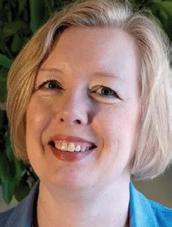
and Community Relations Director of artsVest™ with Business/Arts and consulting work with the Department of Canadian Heritage. She has served on the boards of several cultural institutions and has been invited to speak at conferences and universities about arts management practices. She continues to work as a consultant and produce special projects under the umbrella of The Adlers Agency.
Maria A. Ellis is a passionate educator and conductor. She is the owner of Girl Conductor LLC, a company that creates diverse music education resources and currently serves as the director of the Sheldon’s City of Music All-Star Chorus. Maria is an active clinician, u
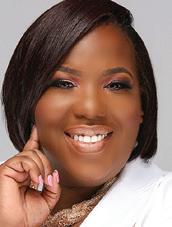
Cantus thanks Chorus America for the 2023 Alice Parker Fund Award, honoring thoughtful presentation of choral music based in the traditions of Black and Latinx communities.
adjudicator, and presenter throughout the United States and abroad. She holds a B.M. in Music Education emphasis on Voice (K–12 Certified) Degree from the University of Missouri-St. Louis. She has served as the arts and administrative fellow for the St. Louis Symphony and has served as the community engagement manager for the St. Louis Children’s Choirs. Maria is the host of the award-winning Show “Bach and Beyoncé” on Classic 107.3 The Voice for the Arts in St. Louis and is a host for the St. Louis Symphony “Live at Powell” broadcast. Maria is an active member of the American Choral Directors Association; National Association of Music Educators; and Missouri Alliance for Arts Education, where she is chair of the RIDE (Race, Inclusion, Diversity & Equity) Committee. She holds Level 3 Certification from the CME Institute for Choral Teacher Education. Maria is the wife of Marion Ellis and the mother of Aria, Kendal, and Noah.
Chorus America’s Director Laureate title is an honorary title given periodically to recognize individuals who have demonstrated extraordinary leadership as a member of Chorus America’s board of directors and had significant impact on the choral field.

Corty Fengler served on the Chorus America Board for a total of 18 years, beginning in 2003, leading the Development Committee for the majority of that time. During her tenure, she worked very closely with the staff, serving as a de facto fundraising consultant for the organization as well as one of our lead development volunteers soliciting support—a role she continues to fill. She developed and served as the presenter for the fundraising workshop in the early Chorus Management Institutes. She also created Chorus America’s first legacy giving program Continuo.
Corty’s career in philanthropy has included work both as a development officer and as a consultant. She served as canon for development at Grace Cathedral in San Francisco and before that as director of development for the San Francisco Symphony, the University of Pennsylvania Medical Center and Westover School. She worked for Wellesley College during two capital campaigns. As a consultant she has provided services to nonprofits such as the St. Paul Chamber Orchestra, the Museum of Fine Arts Boston and many choruses, orchestras, schools and universities. She has served on national committees for the Council for Advancement and Support of Education, the Alumnae Board of Wellesley College, the Board of the Association of California Symphony Orchestras and the board of Walden School, a summer music program in New Hampshire. n









Board Officers
Anton Armstrong+
Chair
Tosdal Professor of Music, St. Olaf College
Marie Bucoy-Calavan
Secretary
Director of Choral Studies, University of Akron
John Earls
Treasurer
Board Member, May Festival Chorus Board Chair, Vocal Arts Ensemble of Cincinnati
Brian Newhouse*
Immediate Past Chair
Vice President, Individual Giving, Minnesota Orchestra
Members of the Board
Laura Adlers❖
Management Consultant; Executive Director, The Ellora Singers and the Ellora Festival
Hilary Apfelstadt
University of Toronto
Jeffrey Barnett
Partner and CFO, Dorsal Capital Management LLC
Charles Berardesco+
Former Senior VP and General Counsel, North American Electric Reliability Corporation
Dashon Burton
Professional Singer
Iris Derke
Co-Founder and General Director, Distinguished Concerts International New York (DCINY)
Rollo Dilworth
Professor of Choral Music Education & Vice Dean, Center for the Performing and Cinematic Arts, Temple University
Maria A. Ellis❖
Educator and Conductor, Girl Conductor LLC; Director, Sheldon’s City of Music
All-Star Chorus
Todd Estabrook*
Immediate Past Chair, Handel and Haydn Society
David Hayes
Music Director, New York Choral Society
Robert Istad
Artistic Director, Pacific Chorale
Director of Choral Studies, CSU Fullerton
Craig Hella Johnson
Founder and Artistic Director, Conspirare Artistic Director, Vocal Arts Ensemble
Anne B. Keiser+
Former Board Chair, The Choral Arts Society of Washington
Robyn Reeves Lana
Artistic Director, Cincinnati Youth Choir
Mark Lawson+ President, ECS Publishing Group
Alysia Lee+
President, Baltimore Children & Youth Fund; Founder & Artistic Director, Sister Cities Girlchoir
Mary Doughty Mauch+
Conductor and Grassroots Organizer & Leader
Marcela Molina+
Director, Tucson Girls Chorus
David Morrow
Professor and Director of the Morehouse Glee Club, Morehouse College
Linda Moxley*
Executive Director, Sarasota Concert Association
Steven Neiffer
Chief Financial Officer, Los Angeles Master Chorale
John Nuechterlein
Community Leader and Former President/ CEO, American Composers Forum
Elizabeth Núñez
Creative Director, Young People’s Chorus of New York City; Founding Artistic Director, SoHarmoniums Women’s Choir
Eric V. Oliver
Zion Baptist Church;
Loretta C. Manggrum Chorale
Dianne Peterson
Executive Director Emerita, The Washington Chorus
Molly Buzick Pontin
Vice President and Director of Education
Andrea Ramsey
Composer, Conductor, and Music Educator
Eugene Rogers+
Director of Choral Activities, University of Michigan; Artistic Director, The Washington Chorus
Diana Sáez+
Director of Choral Activities, Towson University
Pearl Shangkuan*
Director of Choral Activities and Professor of Choral Music, Calvin University
Chorus Director, Grand Rapids Symphony
Karen P. Thomas
Artistic Director and Conductor, Seattle Pro Musica
Anthony Trecek-King
Resident Conductor, Handel and Haydn Society Chorus
Duain Wolfe
Former Director and Conductor, Chicago Symphony Chorus; Director and Conductor, Colorado Symphony Chorus
Earn your
Messiah University’s Graduate Program in Music is designed for busy music educators who would like to advance their career and education. Whether you are a public or private school educator, a community or church ensemble director, or a recent music major graduate, our program can help you develop your skills as a music educator or deepen your expertise in music conducting. Experience
• NASM-accredited
• Predominantly online
• 1-week, on-campus summer intensive course (optional for MME)
• Faculty are experienced music educators and conductors
• Conducting degree tracks: choral, orchestral, wind
• Post-master’s certificate of advanced graduate studies in music conducting (CAGS) available

